Past Exhibitions
Browse the chronological list of past exhibitions at the Saint Louis University Museum of Contemporary Art (MOCRA), or search for a specific exhibition. Click “View” for more information about an exhibition. If you need further information about an exhibition, please contact us.
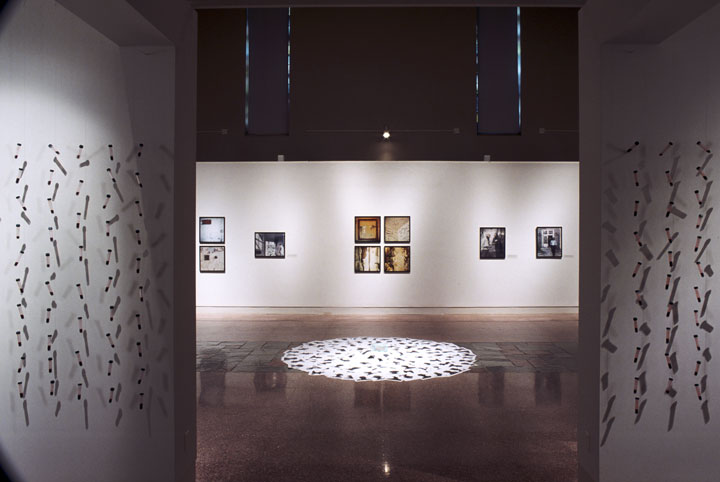
Tony Hooker: The Greater Good – An Artist’s Contemporary View of the Tuskegee Syphilis Study
February 23, 2002 to August 9, 2002
About the Exhibition
The Tuskegee Experiment began in 1932 when the United States Public Health Service initiated a study of syphilis in African American males in Macon County, Alabama. With whatever intentions the study was begun, it evolved into a 40-year study of untreated syphilis in 412 African American men that likely resulted directly in the deaths of at least 28 of the subjects (who were never told what was wrong with them), despite the availability of penicillin during the latter years of the trials. The legacy of the study—exposed to the country in 1972 by an Associated Press reporter, acting on information from a Public Health Service employee—includes a lingering mistrust of the government and medical community on the part of many African Americans, and a marked silence from the doctors and government agencies involved on the ethical, moral, and humanitarian implications of the study.
Learn more about the Tuskegee Syphilis Experiment on Wikipedia.
Tony Hooker’s exhibition tells a story not well known to many Americans, despite a play and film on the subject in recent years and a presidential apology in 1997. The Greater Good explores the history of the experiment in a multimedia way, by means of photography, video, sculpture, poetry and music. The cumulative effect is powerful and sobering. Because of the moral, ethical, medical, legal, historical, cultural, and racial dimensions of Hooker's artistic reflections, an interfaith contemporary art museum at a Catholic university seems a most appropriate setting in which to experience the exhibition. It is our hope to encourage dialogue in the many schools and departments of the University, and in the larger metropolitan area as well. We must as a community assess the ramifications of the Tuskegee Experiment in our contemporary culture and work together to insure that such gravely misguided decisions not happen again.
About the Artist
Tony Hooker is an artist from San Francisco, CA. He received his MFA in Photography from the San Francisco Art Institute in 1995. While his artwork is strongly based in photography, it frequently includes other media such as music, video, and installation motifs. His subject matter generally incorporates a social theme, asking the viewer to reexamine some well-founded ethical or moral principle.
This is a story of good intentions gone awry. Of small lies. Of deceit. Of suffering and heartbreak. Of questionable ethics. Of entanglements small and large. Of racism. And perhaps, most importantly, loss of trust among people, their community, and their government. And what belief was used to justify all this: The doctors said that if a few had to suffer for the greater good of the rest it was worth it! | Tony Hooker
above:
Installation view of Tony Hooker: The Greater Good at MOCRA, 2002. Photo by Jeffrey Vaughn.
Related programming
Fred D. Gray - The Tuskegee Syphilis Experiment - A Study That Should Never Have Occurred
The Tuskegee Syphilis Experiment: A University Response
Watch Fred D. Gray – The Tuskegee Syphilis Experiment: A Study That Should Never Have Occurred
| Exhibition |
|---|
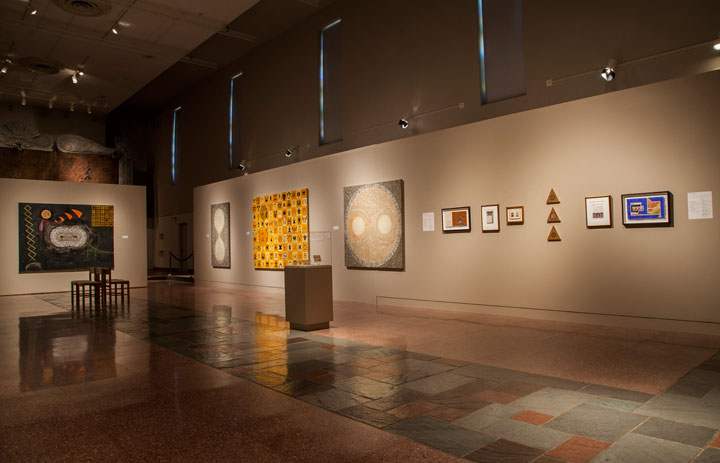
Bernard Maisner: The Hourglass and the Spiral |
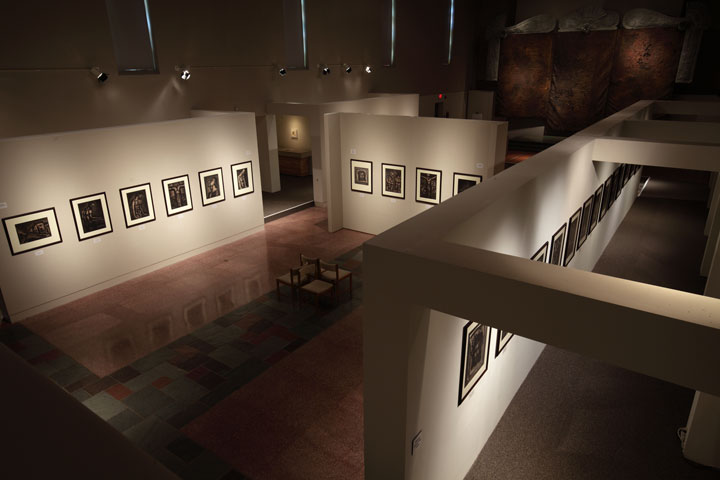
Georges Rouault: Miserere et Guerre |
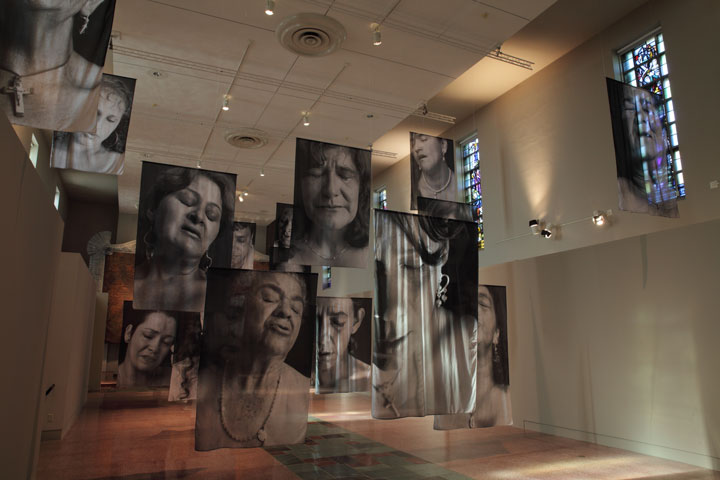
Erika Diettes: Sudarios |
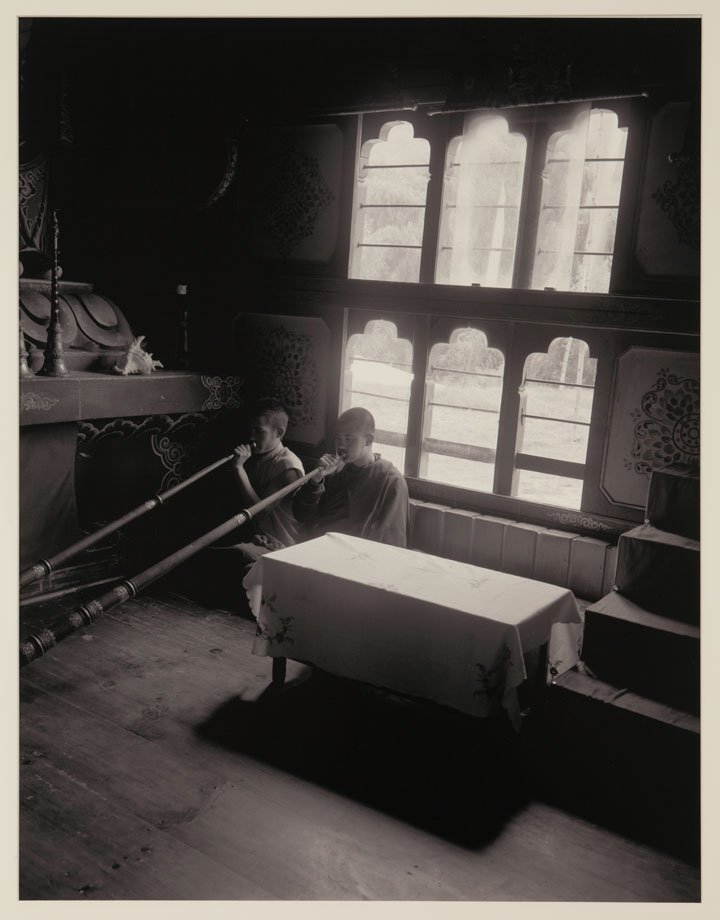
Regina DeLuise: Vast Bhutan – Images from the Phenomenal World |
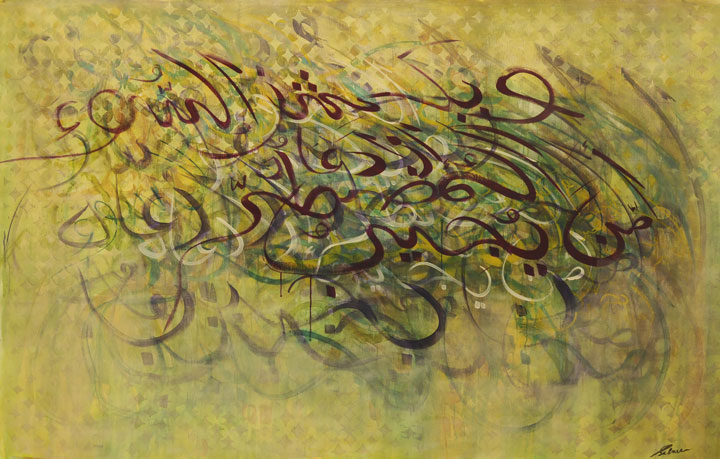
Painting Prayers: The Calligraphic Art of Salma Arastu |
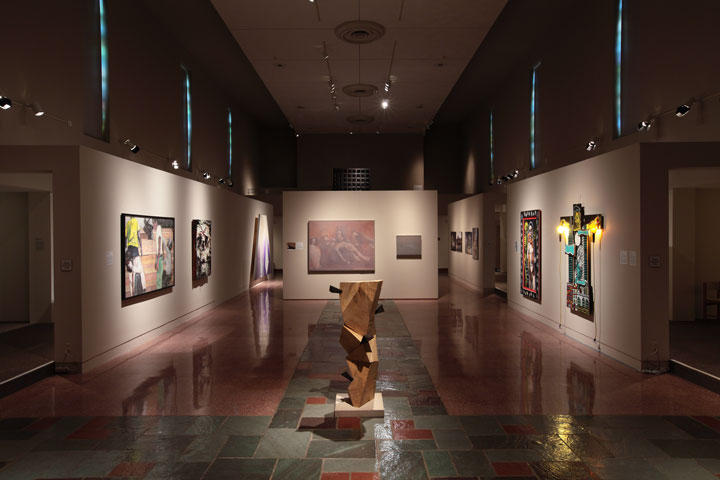
Thresholds: MOCRA at 20 – Part Two, The Second Decade |
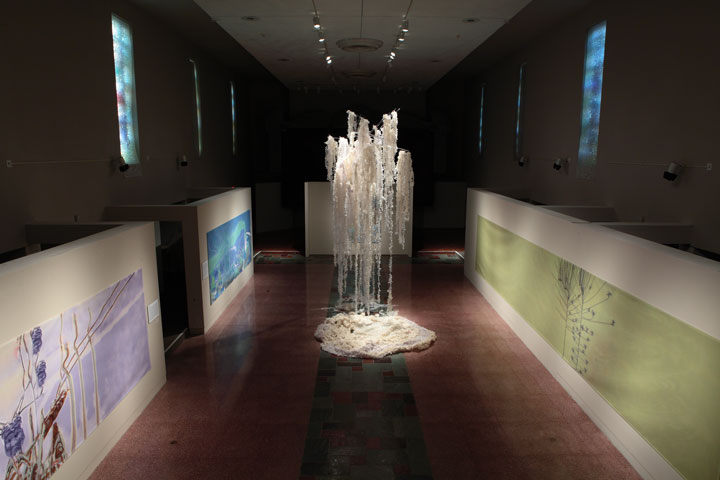
Rebecca Niederlander: Axis Mundi |
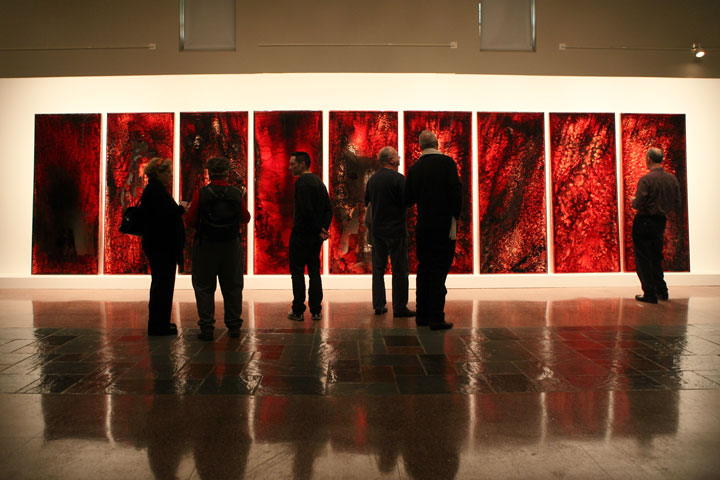
Jordan Eagles: BLOOD / SPIRIT |
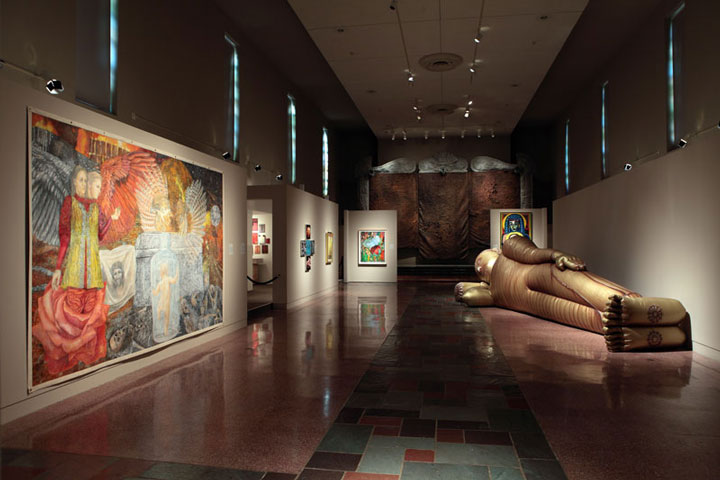
Thresholds: MOCRA at 20 – Part One, The First Decade |
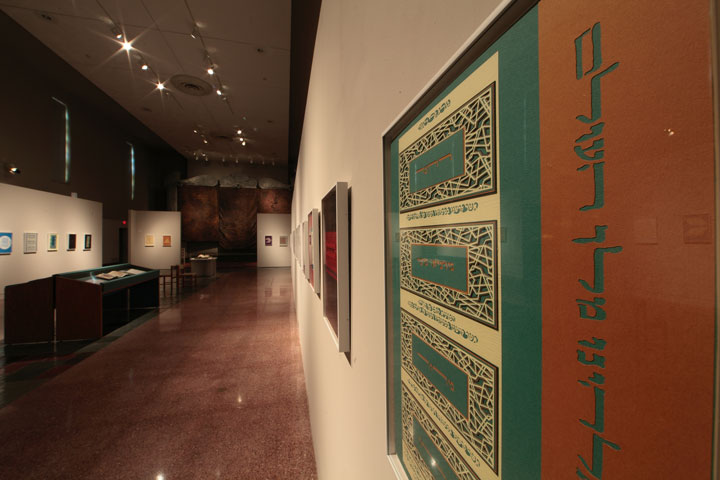
Archie Granot: The Papercut Haggadah |
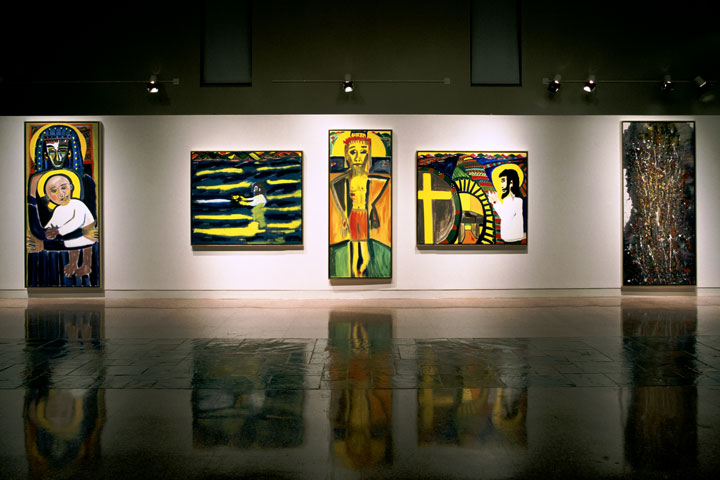
A Tribute to Frederick J. Brown |
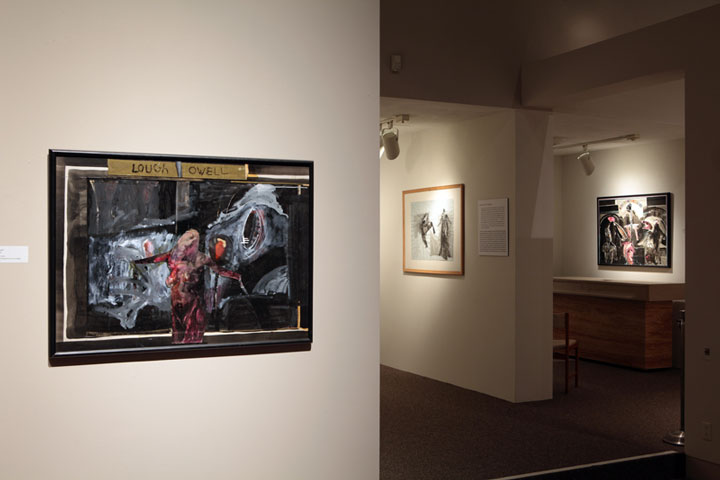
Patrick Graham: Thirty Years – The Silence Becomes the Painting |
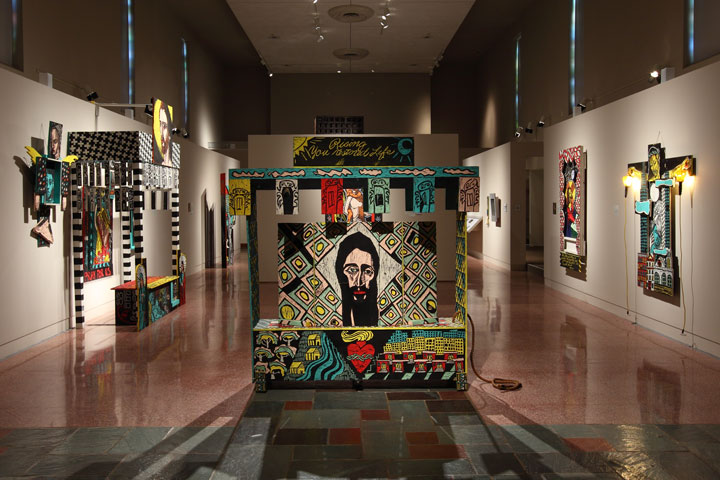
Adrian Kellard: The Learned Art of Compassion |
Good Friday: The Suffering Christ in Contemporary Art |
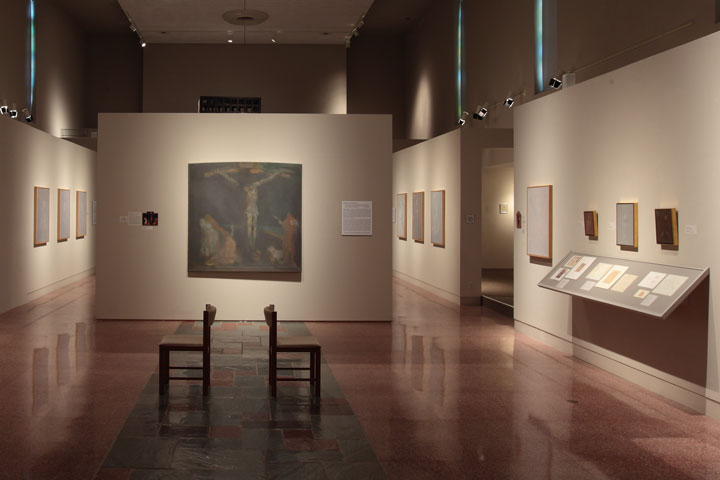
James Rosen: The Artist and the Capable Observer |
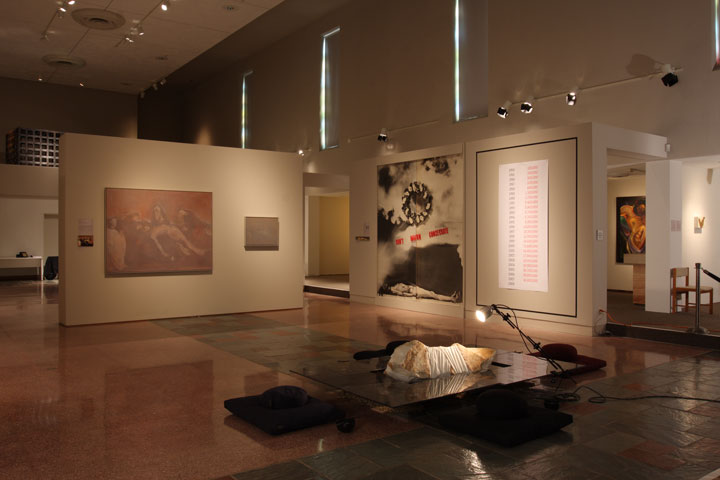
MOCRA at Fifteen: Good Friday |
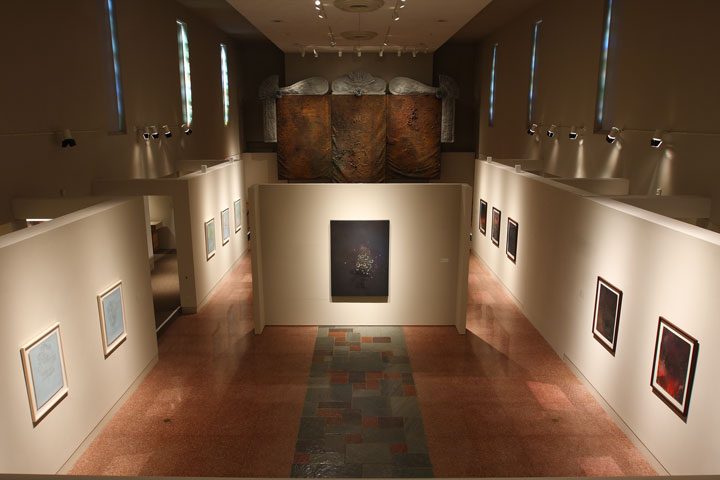
Michael Byron: Cosmic Tears |
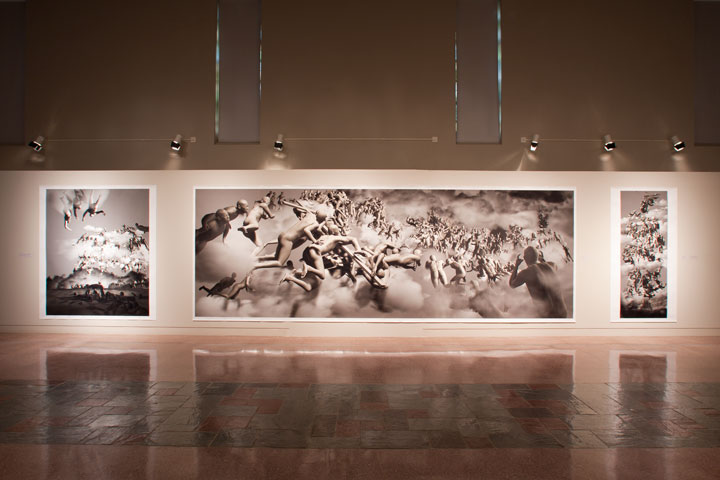
Miao Xiaochun: The Last Judgment in Cyberspace |
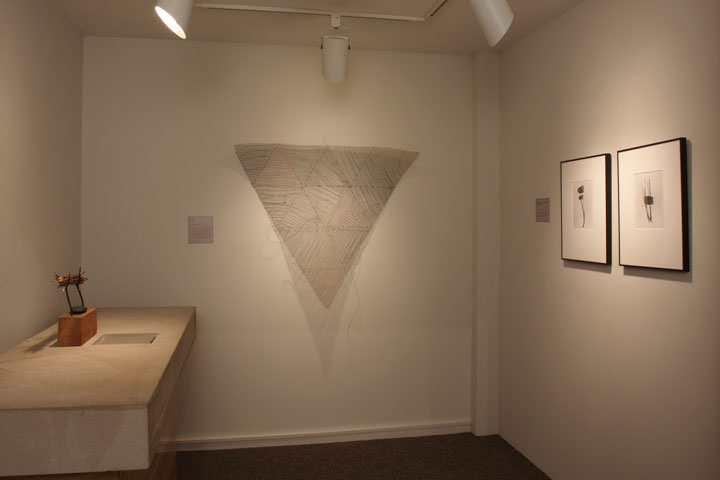
MOCRA at Fifteen: Pursuit of the Spirit |
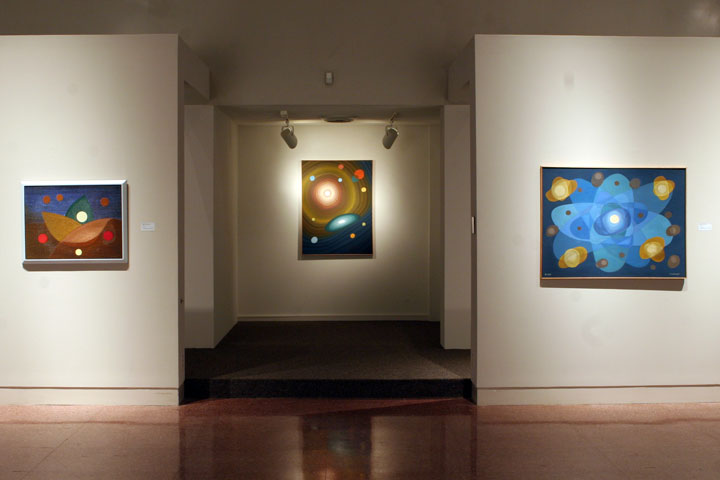
Oskar Fischinger: Movement and Spirit |
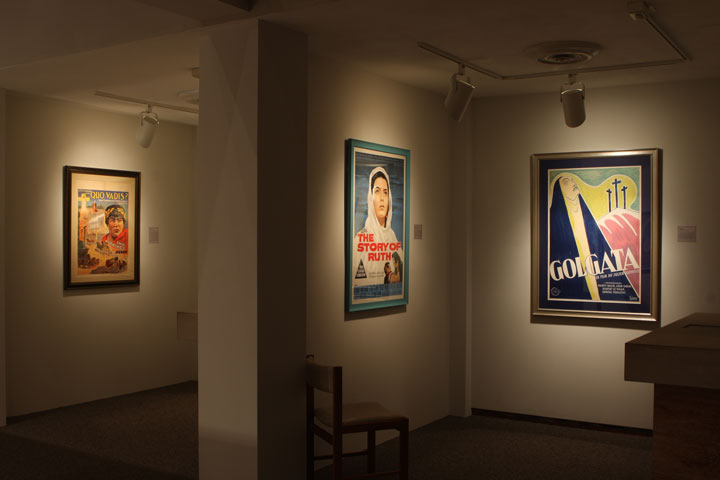
The Celluloid Bible: Marketing Films Inspired by Scripture |
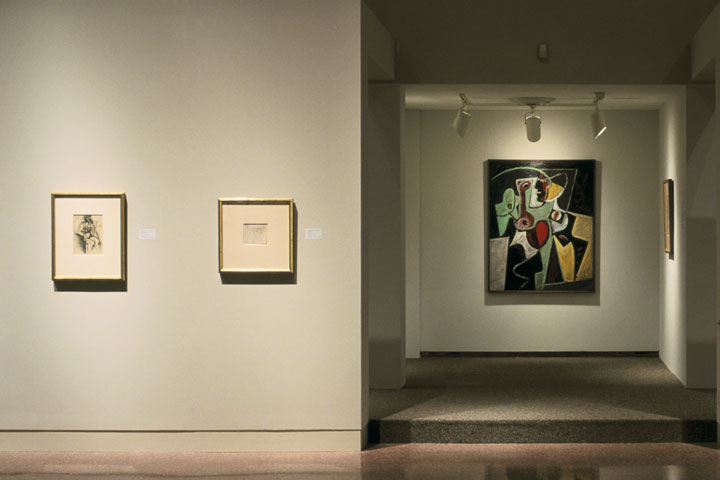
Gorky: The Early Years – Drawings and Paintings, 1927–1937 |

Andy Warhol: Silver Clouds |
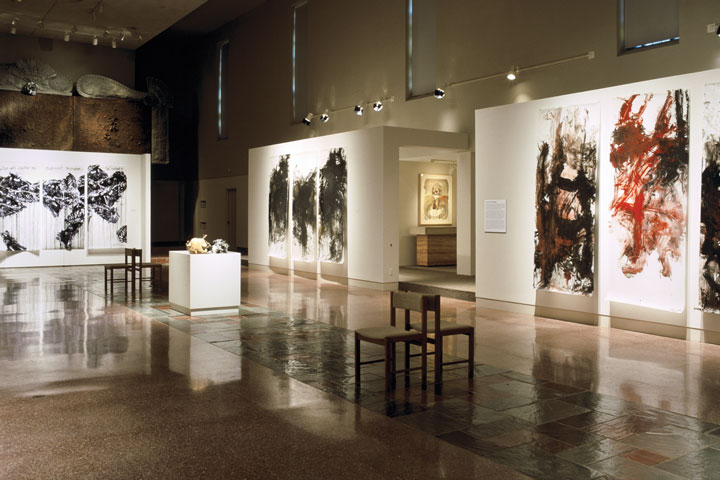
Junko Chodos: The Breath of Consciousness |
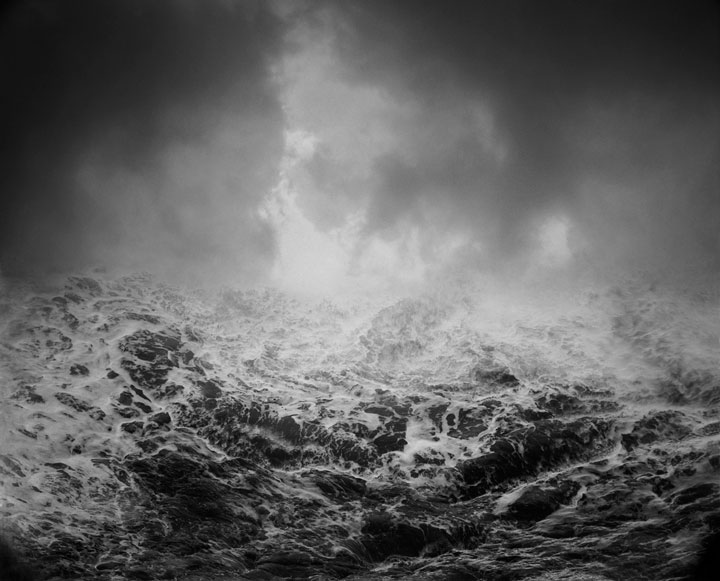
DoDo Jin Ming: Land and Sea |
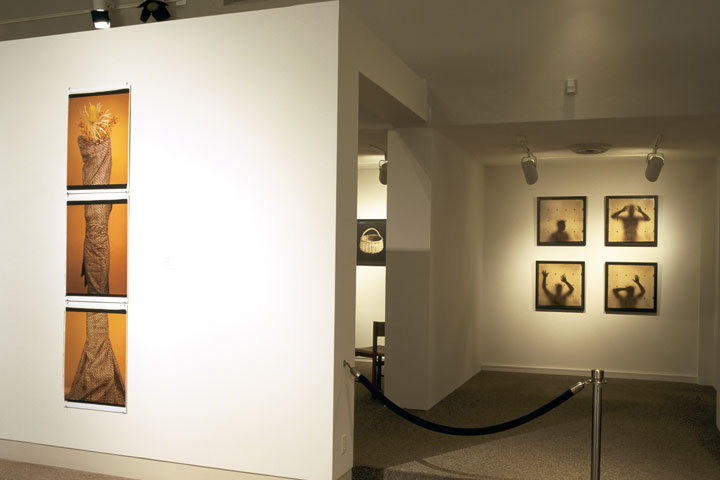
Rito, Espejo y Ojo / Ritual, Mirror and Eye: Photography by Luis González-Palma, María Magdalena Campos-Pons, and Pablo Soria |
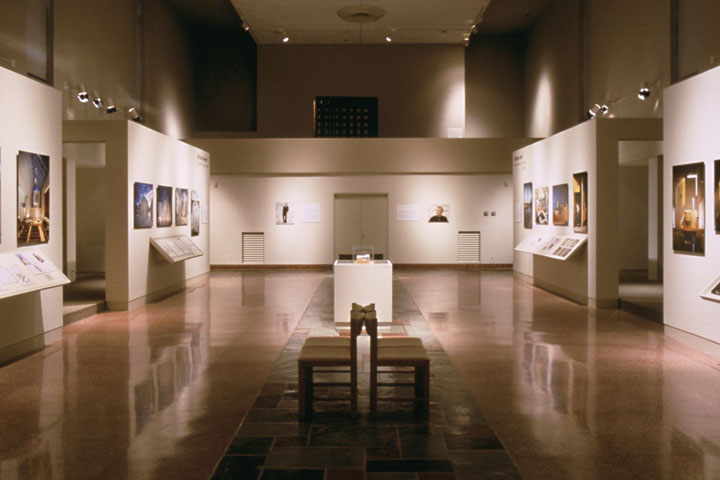
Radiant Forms in Contemporary Sacred Architecture: Richard Meier and Steven Holl |
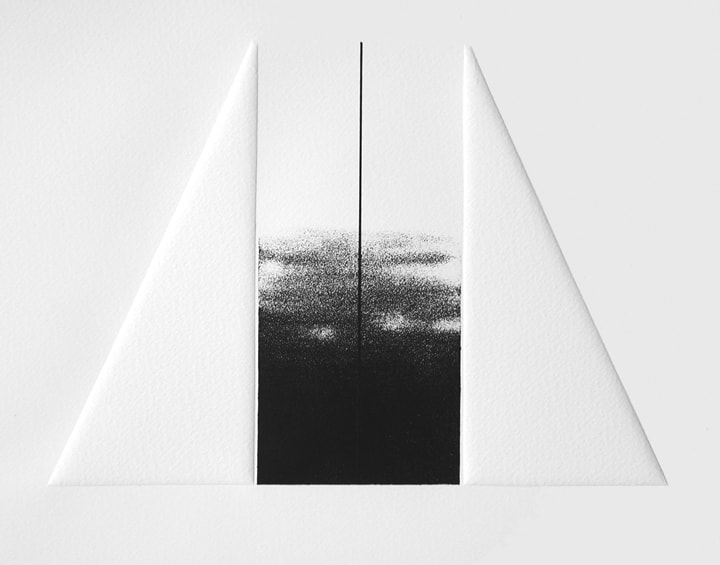
Daniel Ramirez: Twenty Contemplations on the Infant Jesus, an Homage to Oliver Messiaen |
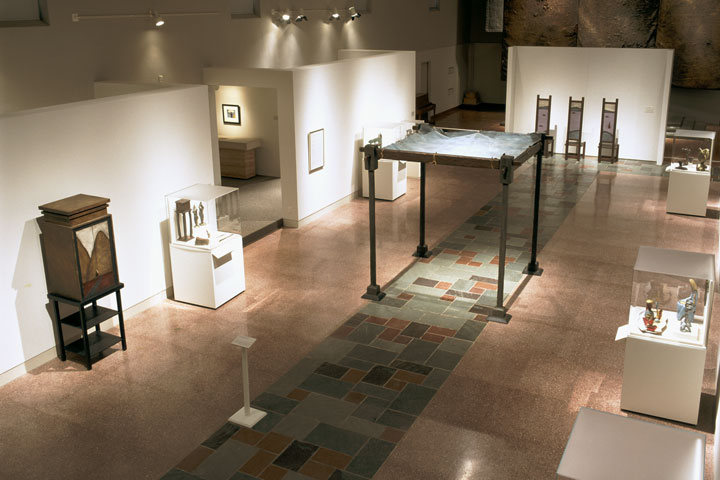
Avoda: Objects of the Spirit – Ceremonial Art by Tobi Kahn |

Tony Hooker: The Greater Good – An Artist’s Contemporary View of the Tuskegee Syphilis Study |

Andy Warhol: Silver Clouds, an encore presentation |

Andy Warhol’s Silver Clouds: A Fortieth Anniversary Celebration |
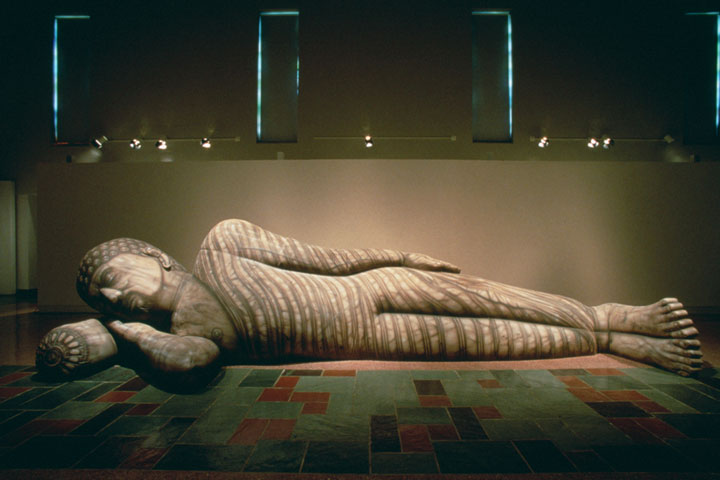
Lewis deSoto: Paranirvana |
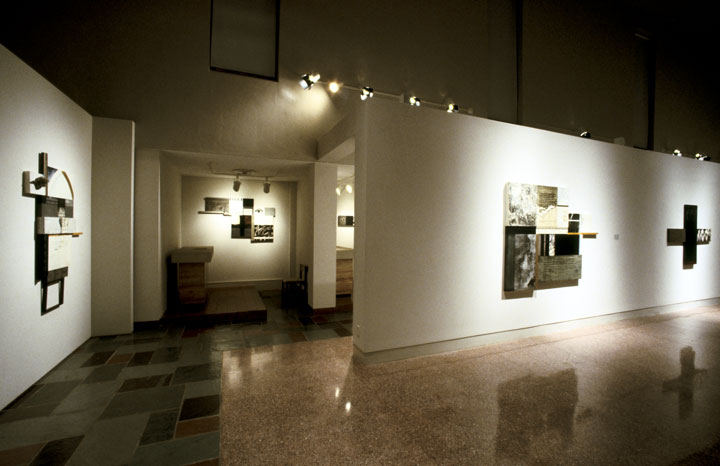
Robert Farber: A Retrospective, 1985–1995 |
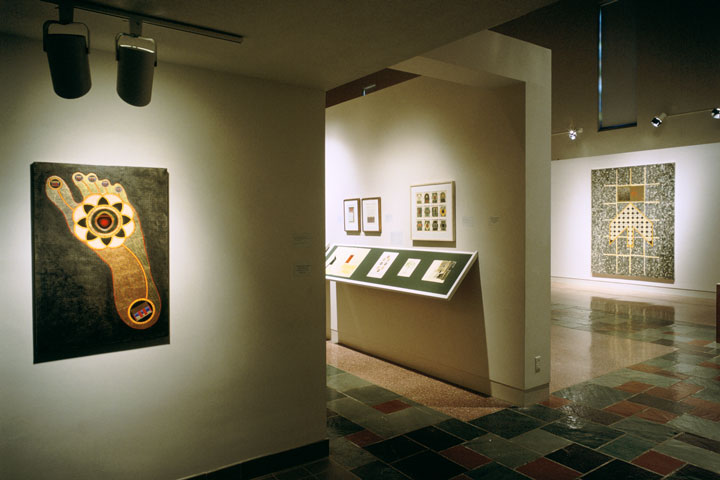
Bernard Maisner: Entrance to the Scriptorium |
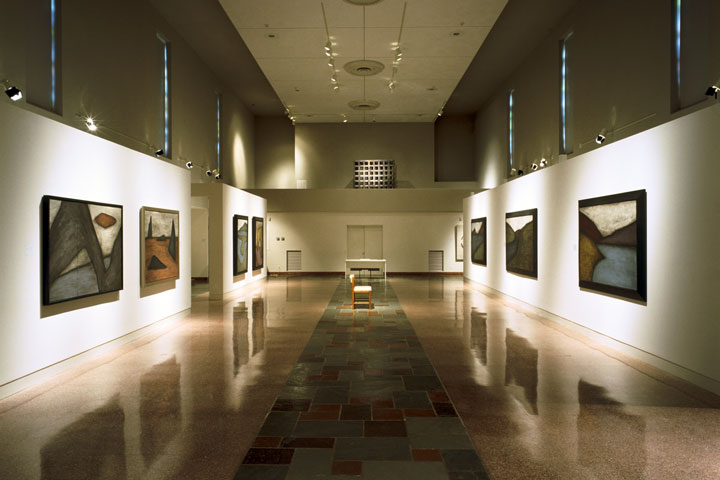
Tobi Kahn: Metamorphoses |
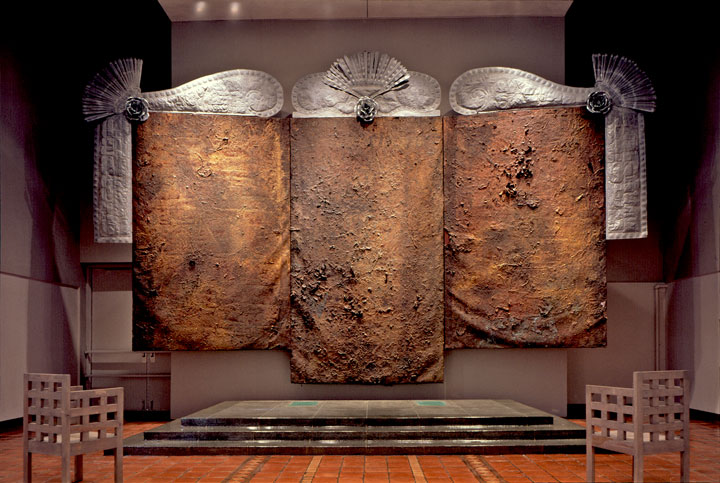
MOCRA: The First Five Years |
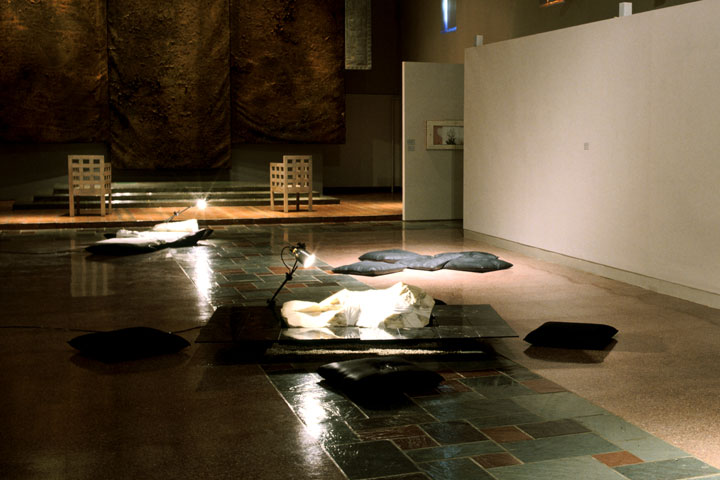
Steven Heilmer: Pietre Sante | Holy Stones |
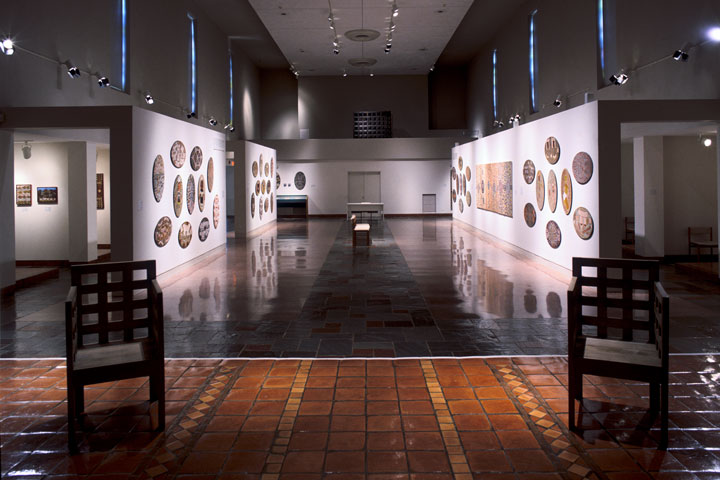
Utopia Body Paint Collection and Australian Aboriginal Art from St. Louis Collections |
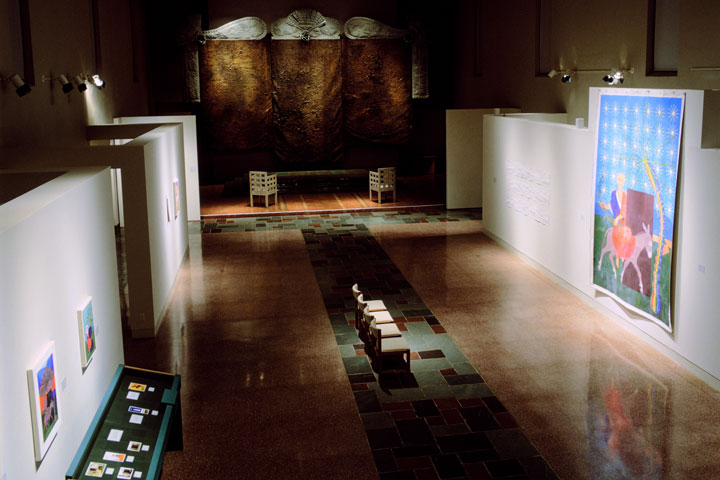
Manfred Stumpf: Enter Jerusalem |
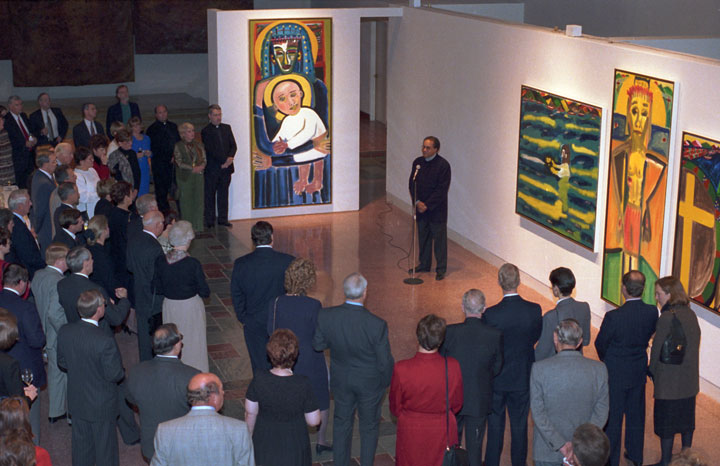
Frederick J. Brown: The Life of Christ Altarpiece |
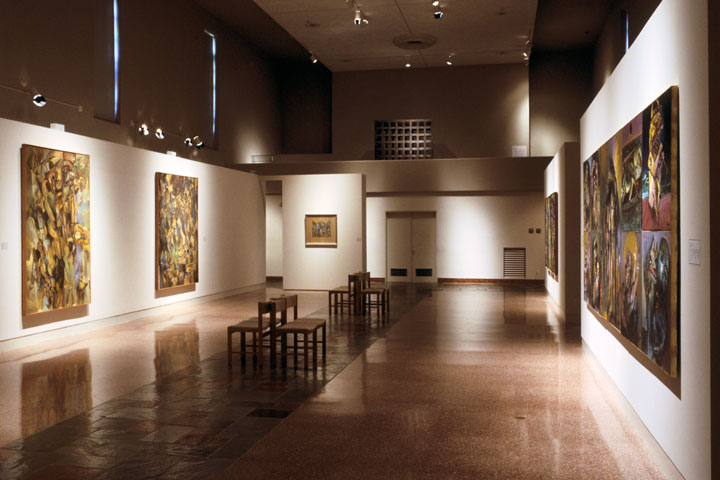
Edward Boccia: Eye of the Painter |
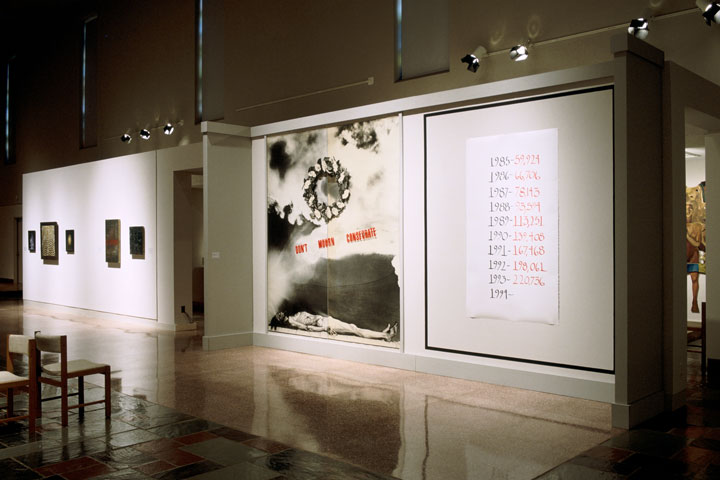
Consecrations Revisited |
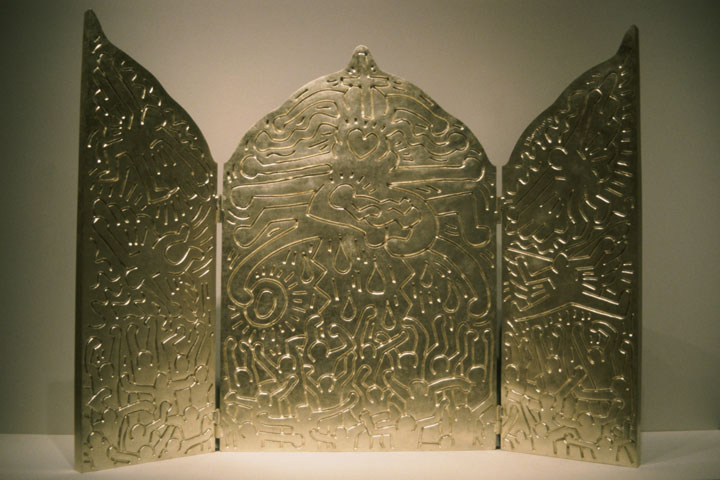
Keith Haring: Altarpiece – The Life of Christ |
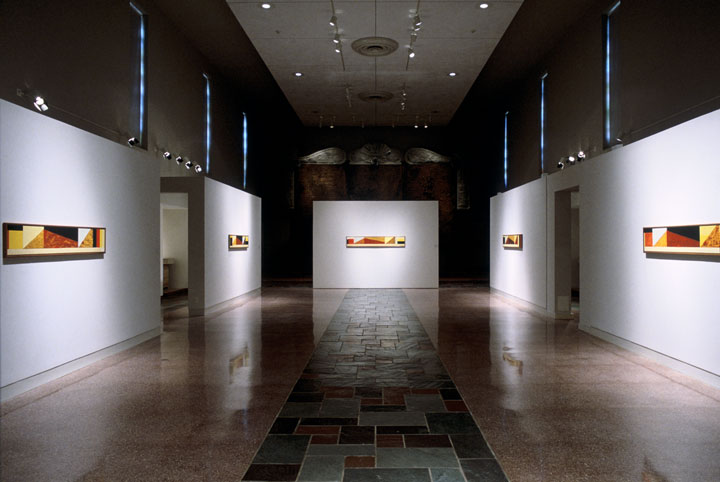
Ian Friend: The Edge of Belief – paintings, sculpture, and works on paper, 1980–1994 |
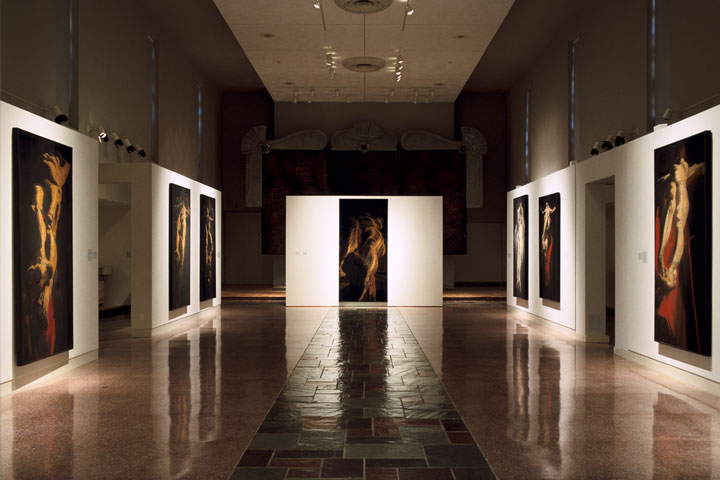
Eleanor Dickinson: A Retrospective |
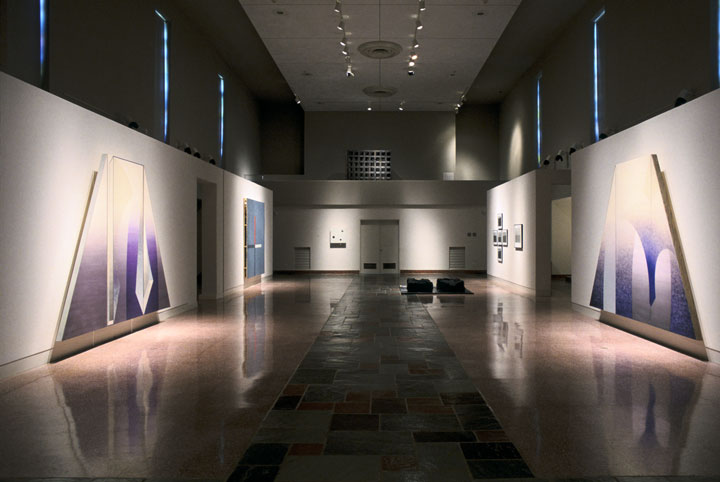
Post-Minimalism and the Spiritual: Four Chicago Artists |
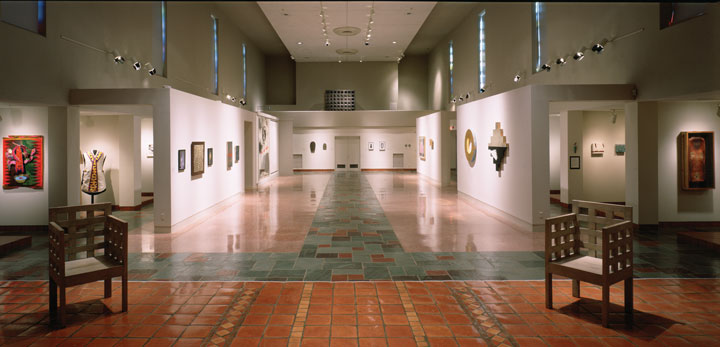
Consecrations: The Spiritual in Art in the Time of AIDS |
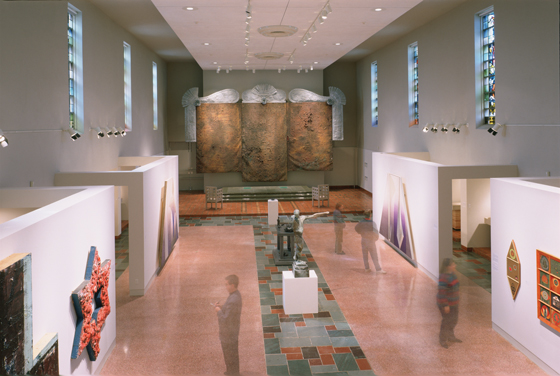
Sanctuaries: Recovering the Holy in Contemporary Art, Part One |
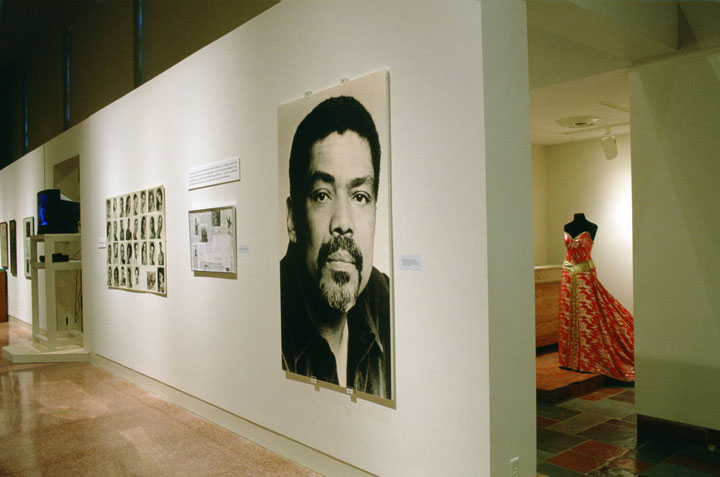
Body and Soul: The Alvin Ailey American Dance Theater |
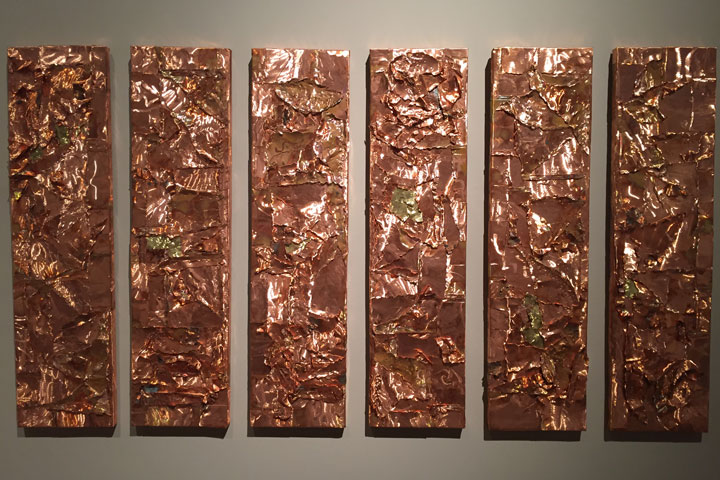
Transformations: Highlights from the MOCRA Collection |
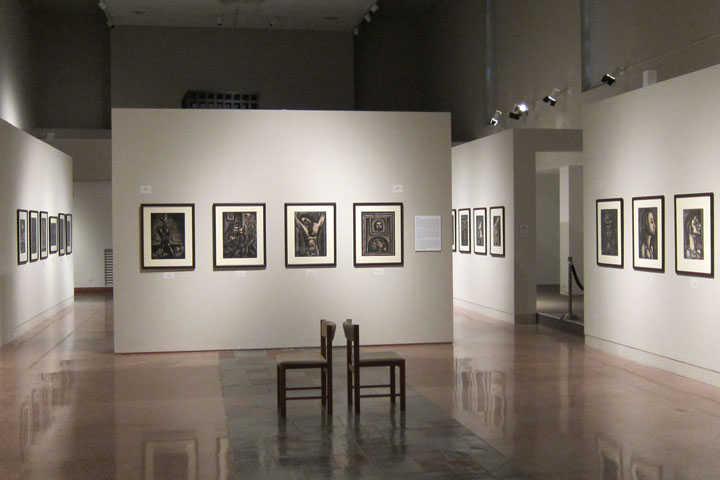
Georges Rouault: Miserere et Guerre |
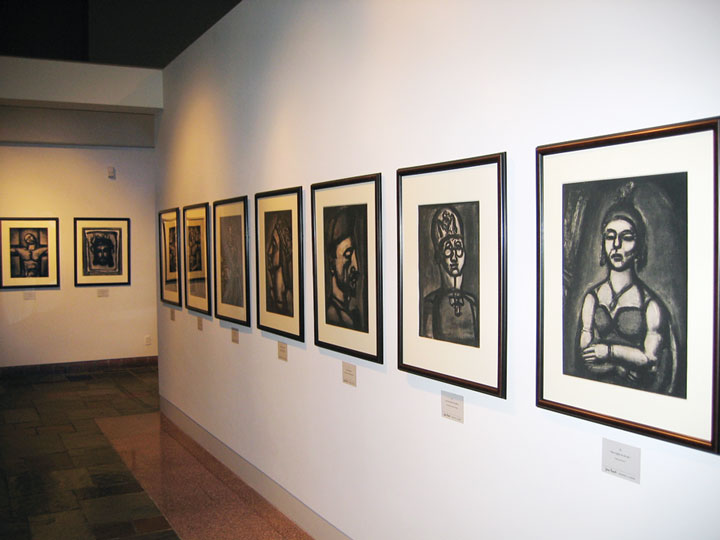
Georges Rouault: Miserere et Guerre |
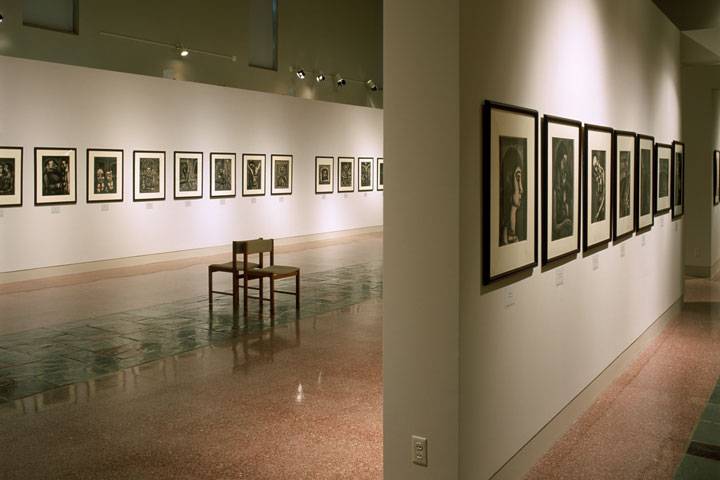
Georges Rouault: Miserere et Guerre |
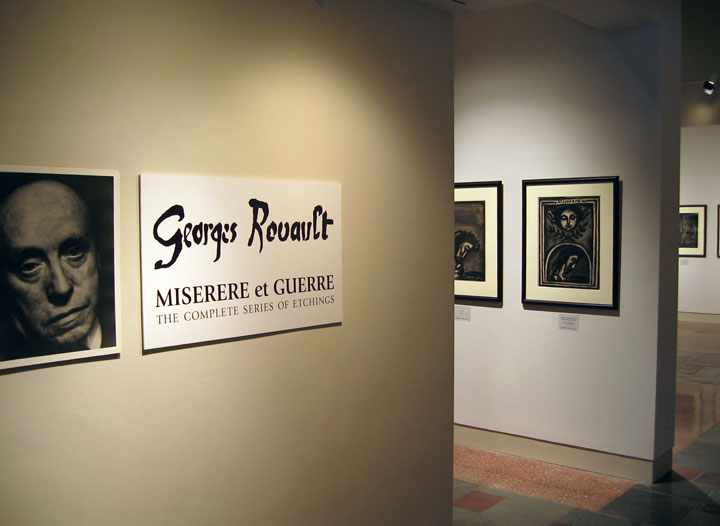
Georges Rouault: Miserere et Guerre |
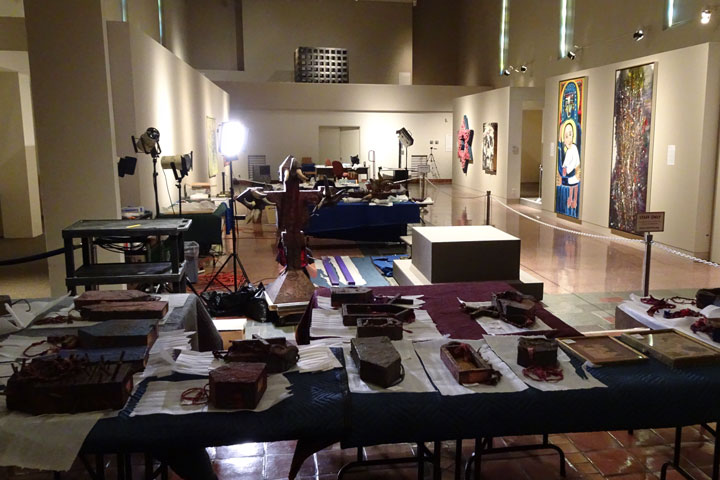
Visible Conservation |
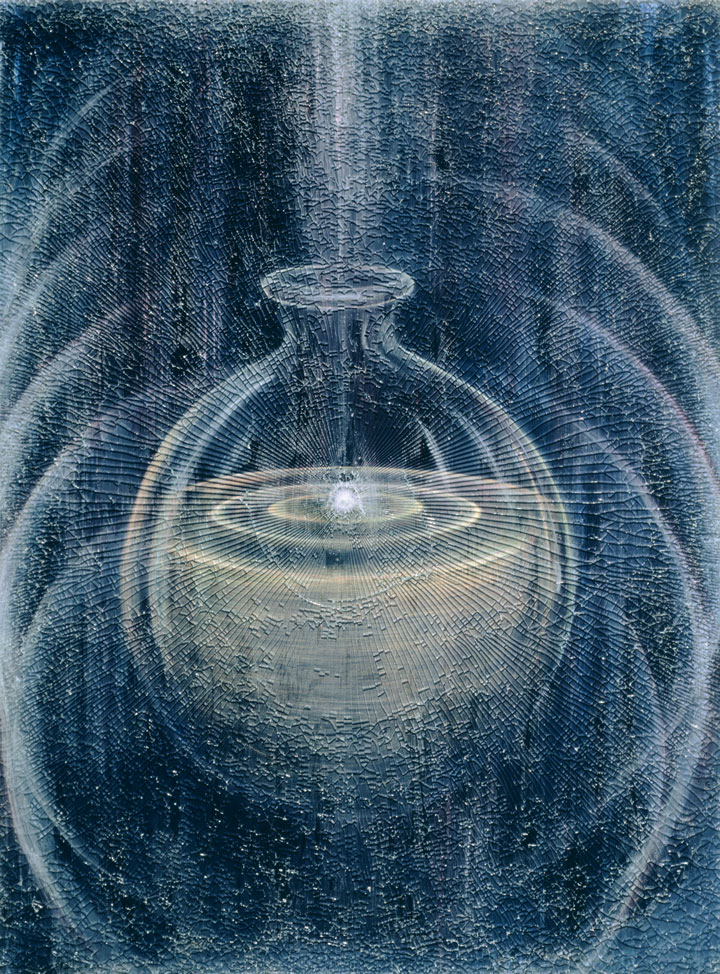
Highlights from the MOCRA Collection |
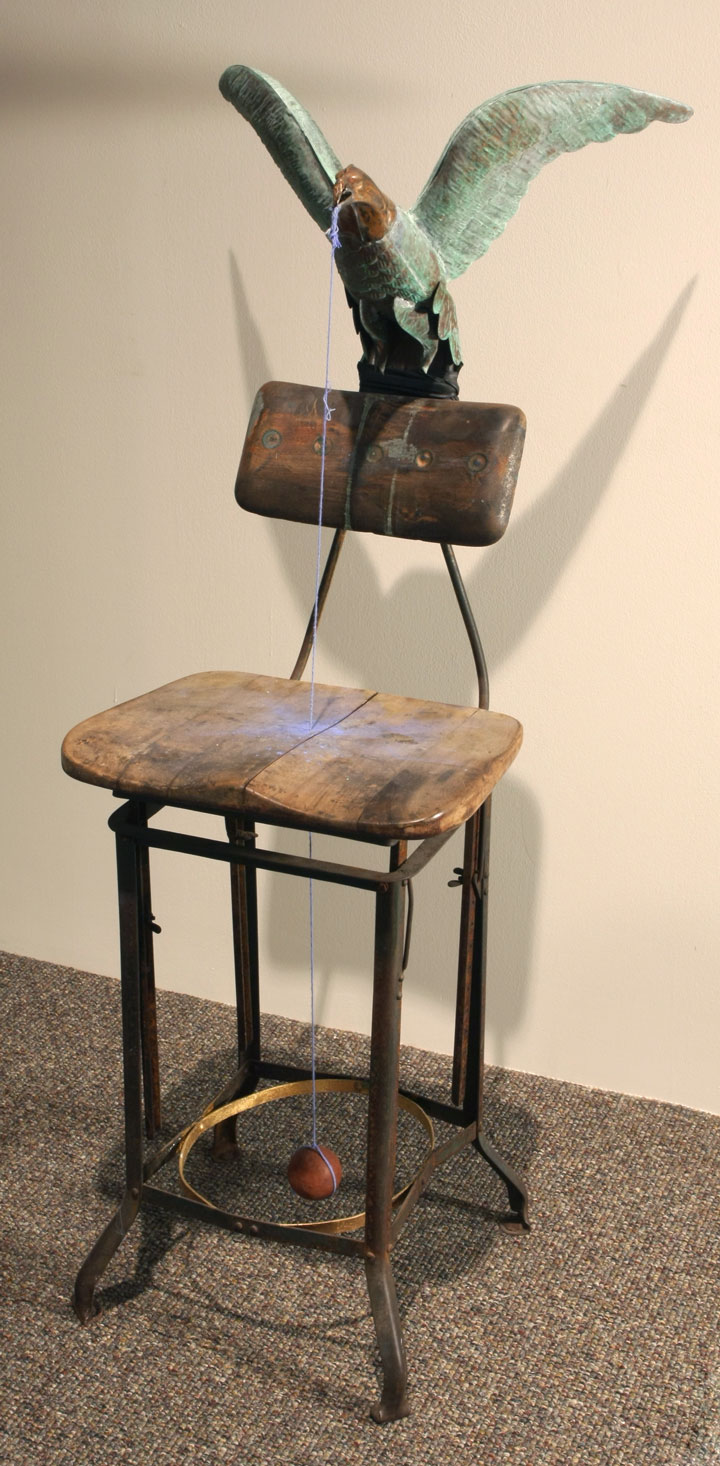
Highlights from the MOCRA Collection |
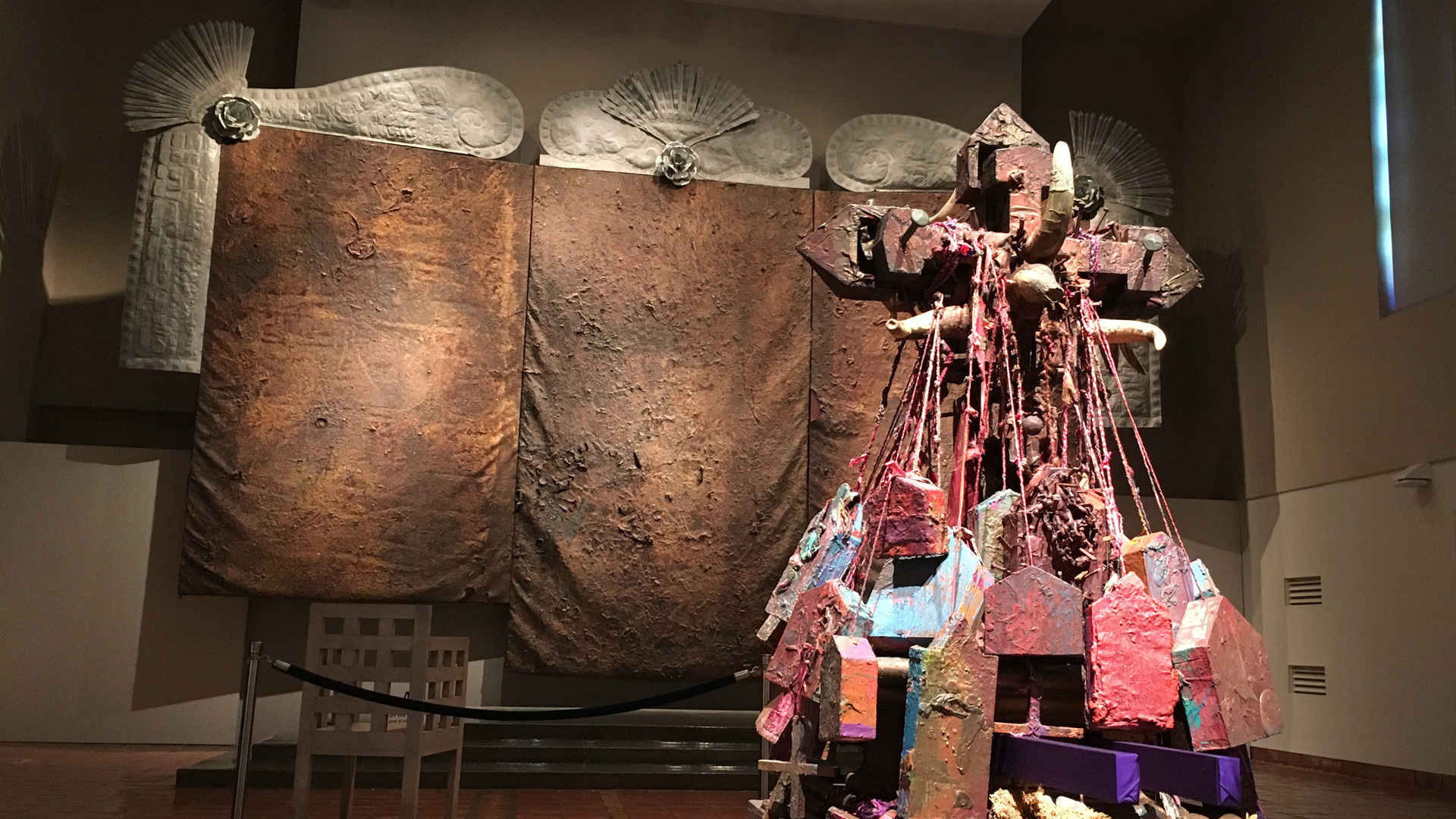
Highlights from the MOCRA Collection: The Romero Cross |
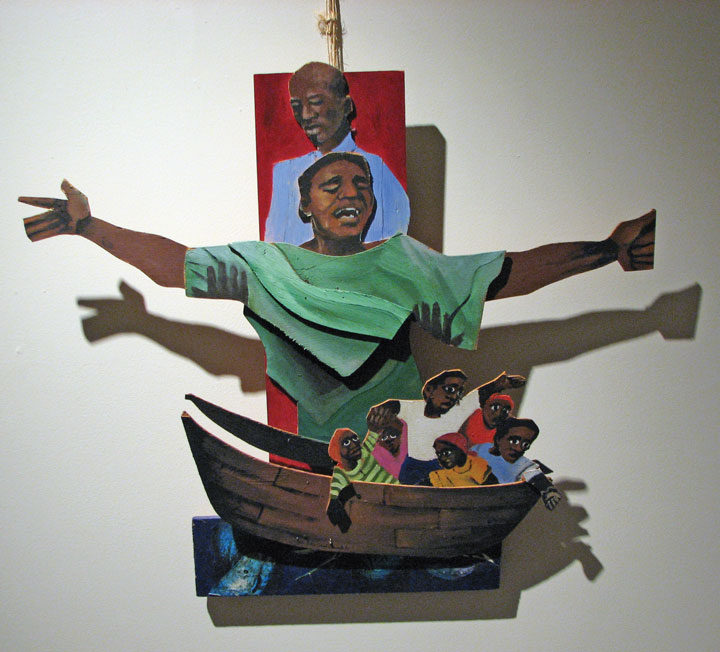
Highlights from the MOCRA Collection |
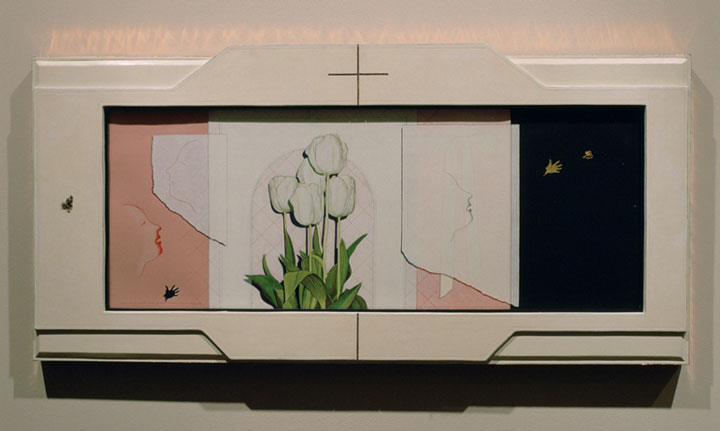
Highlights from the MOCRA Collection |
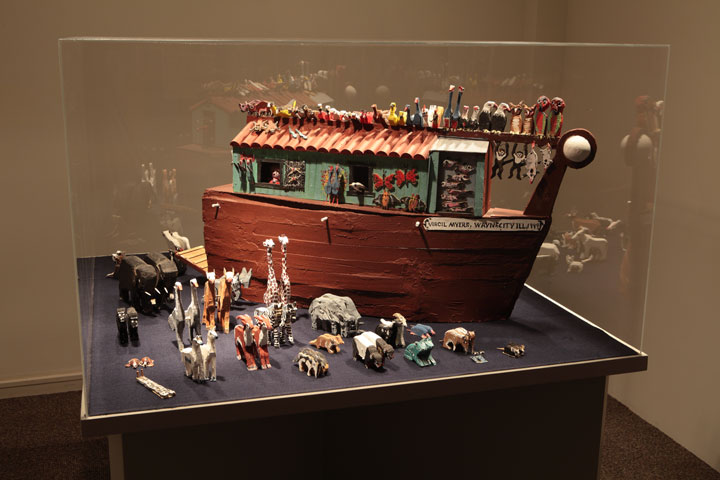
Highlights from the MOCRA Collection |
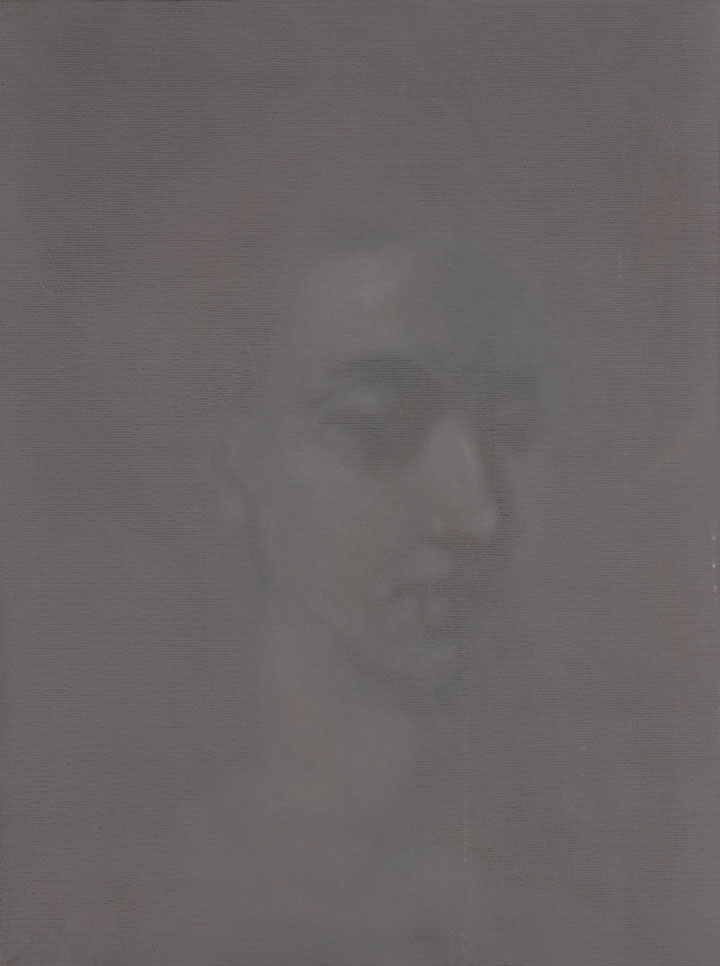
Highlights from the MOCRA Collection |
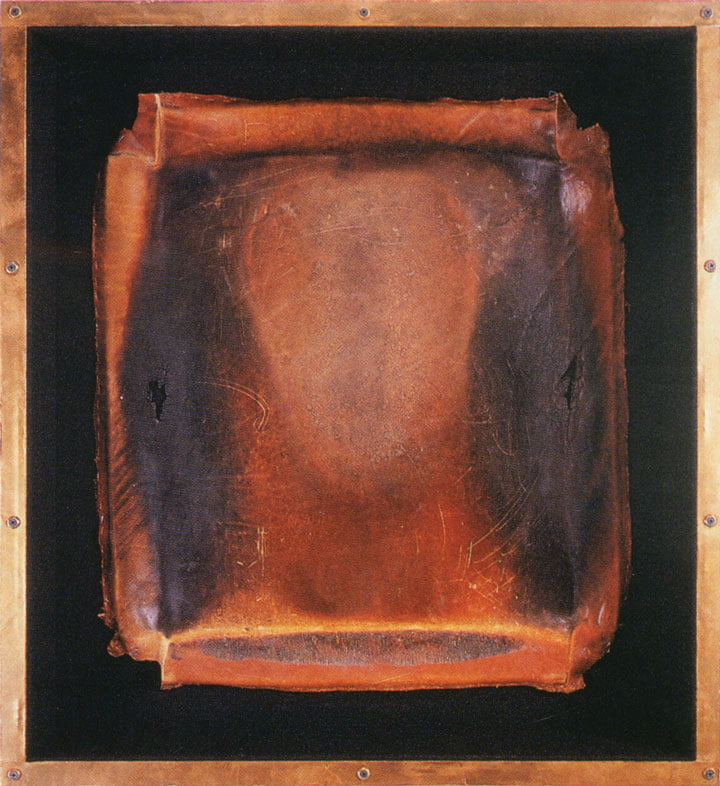
Highlights from the MOCRA Collection |
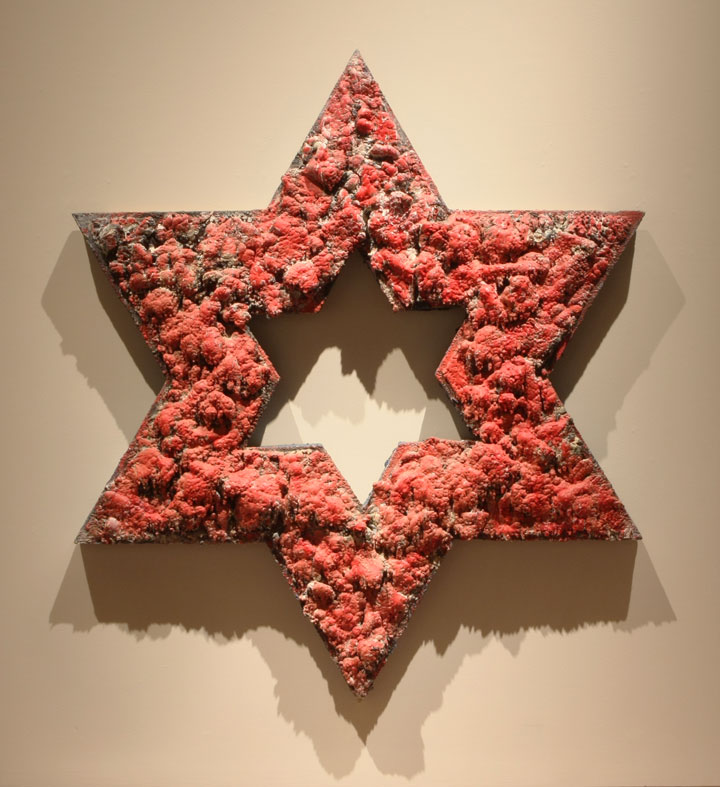
Highlights from the MOCRA Collection |
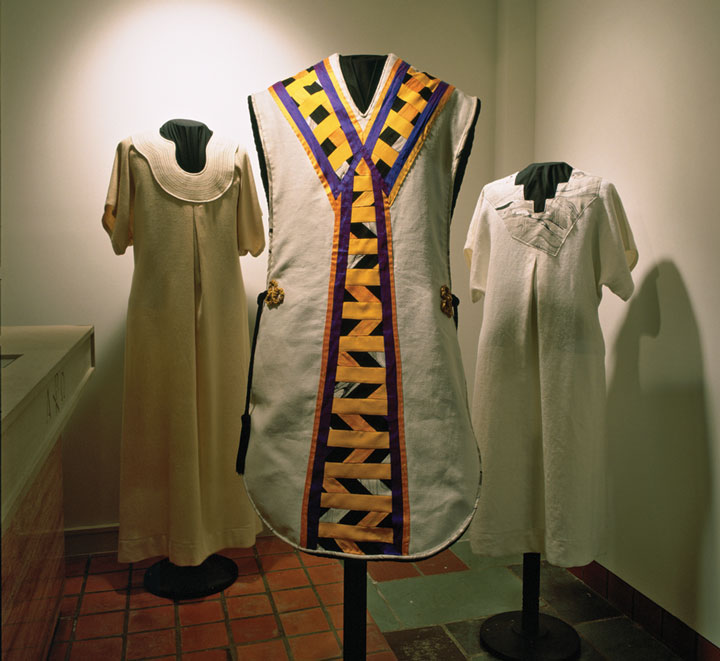
Highlights from the MOCRA Collection |

Sanctuaries: Recovering the Holy in Contemporary Art, Part Two – Three Major Installations |
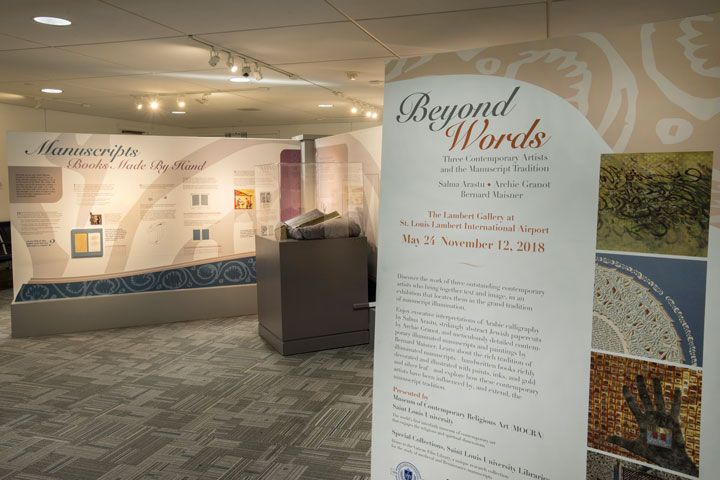
Beyond Words: Three Contemporary Artists and the Manuscript Tradition |
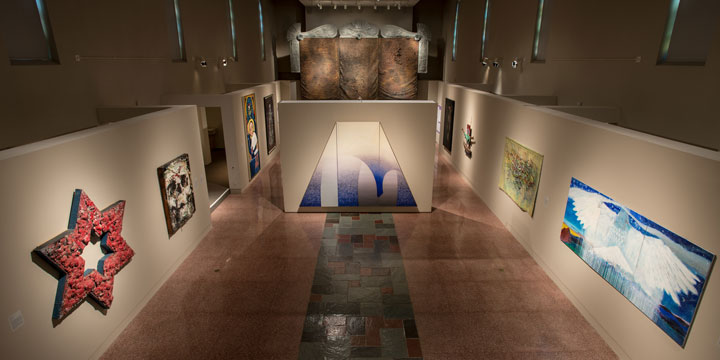
MOCRA: 25 |
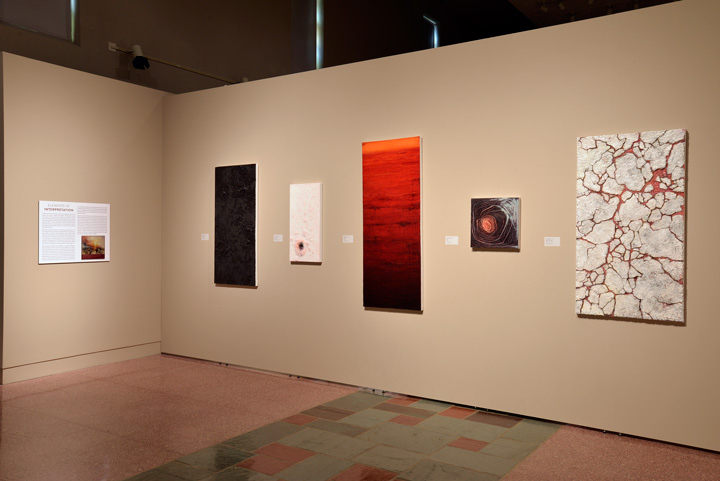
Gary Logan: Elements |
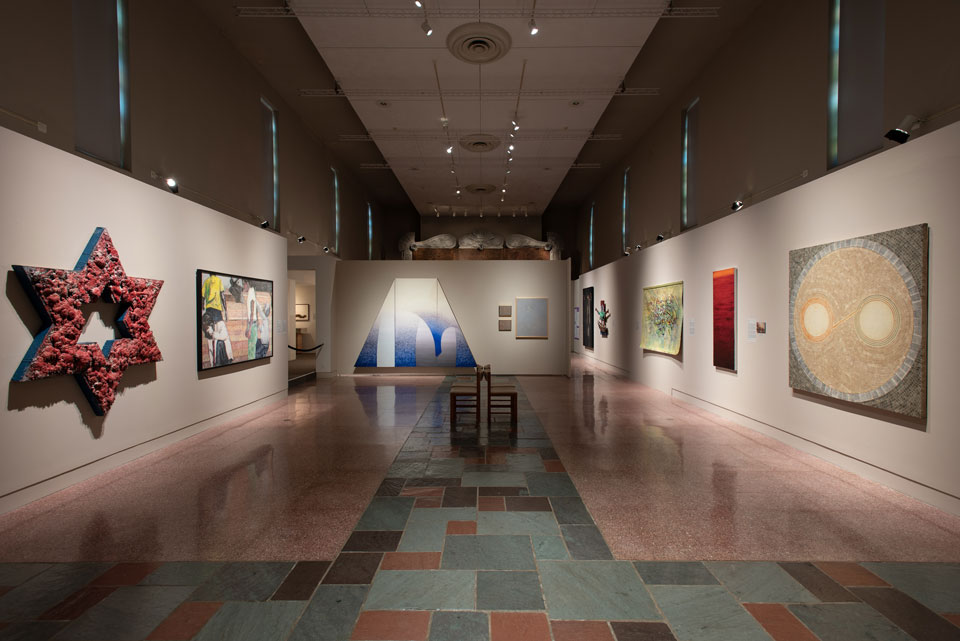
Gratitude |
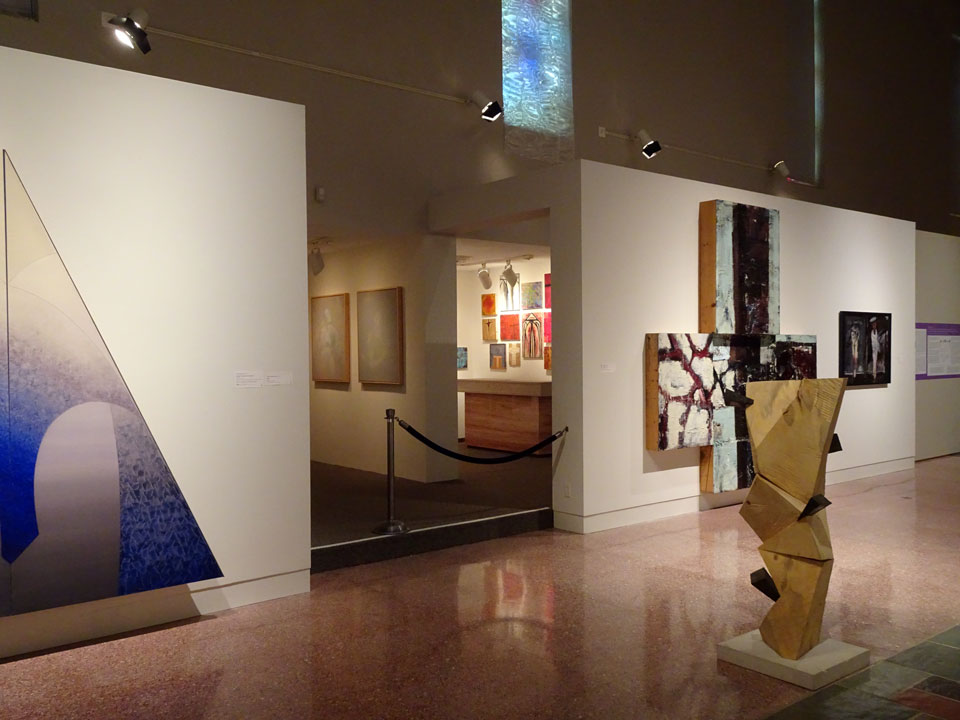
Surface to Source |
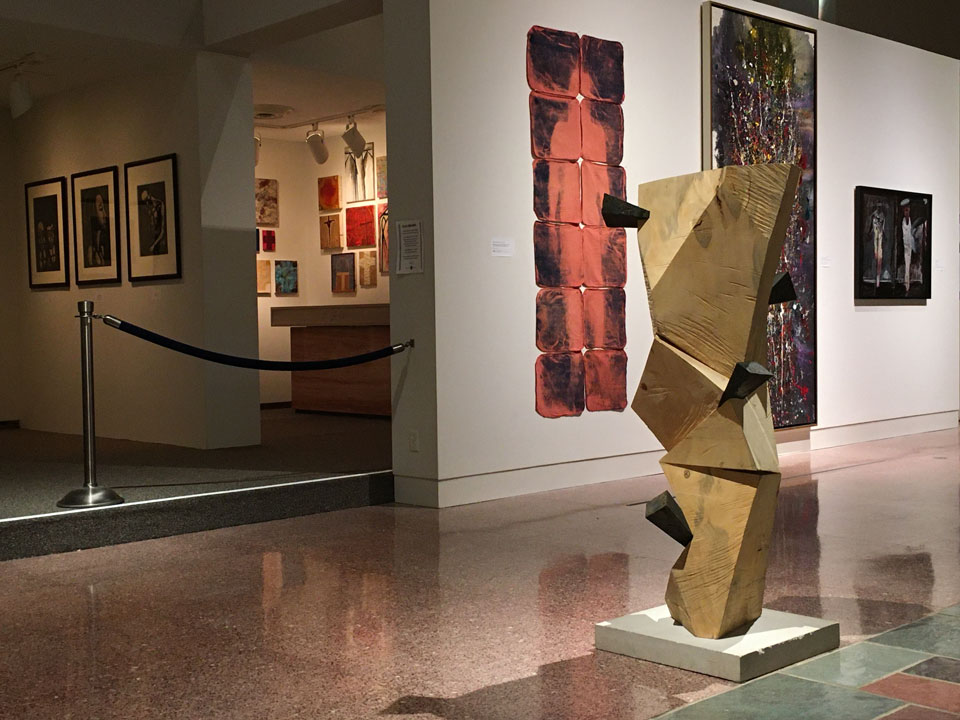
Quiet Isn’t Always Peace |
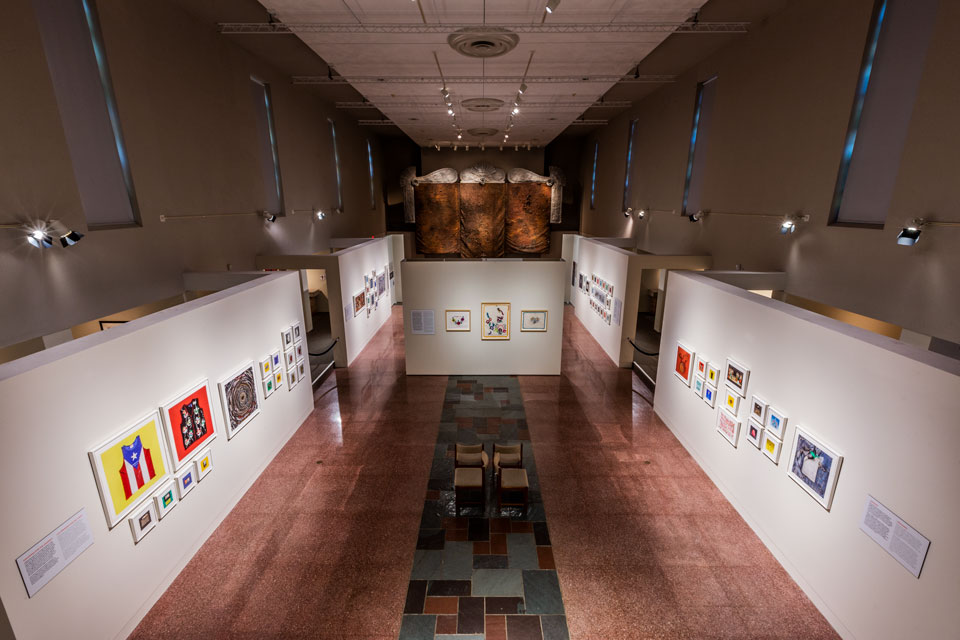
Tom Kiefer: Pertenencias / Belongings |
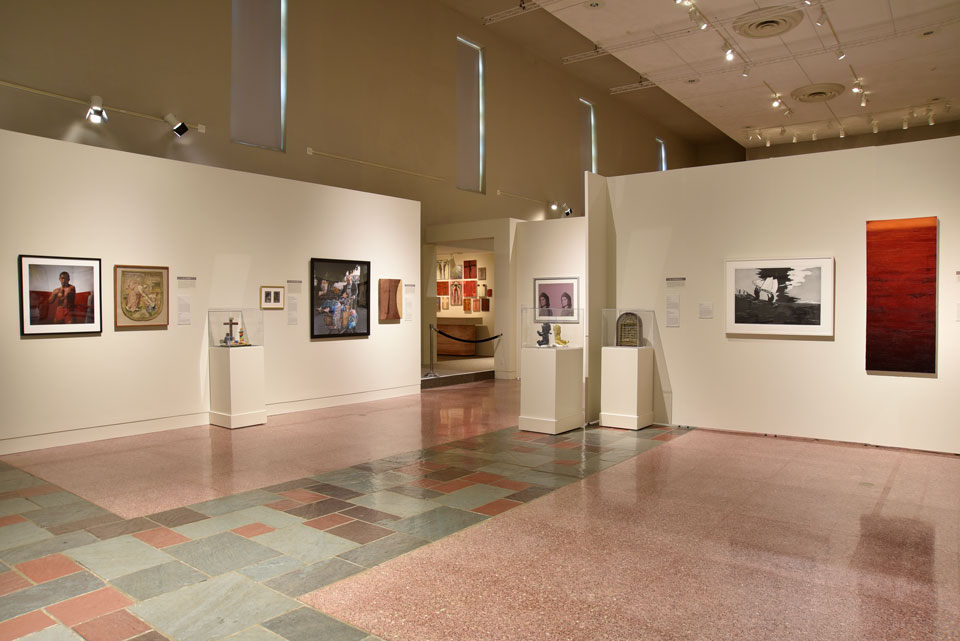
Double Vision: Art from Jesuit University Collections |
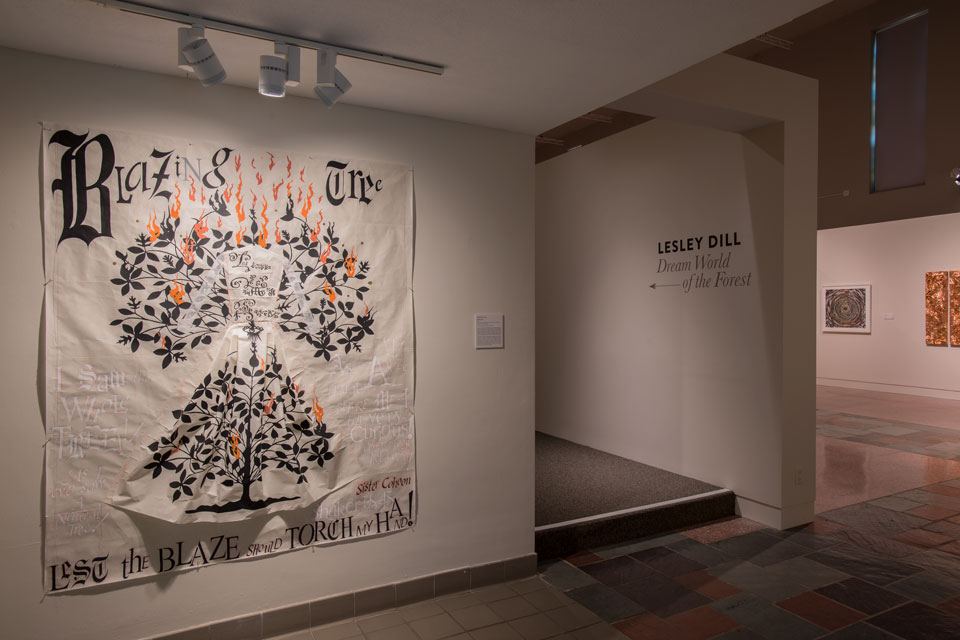
Lesley Dill: Dream World of the Forest |
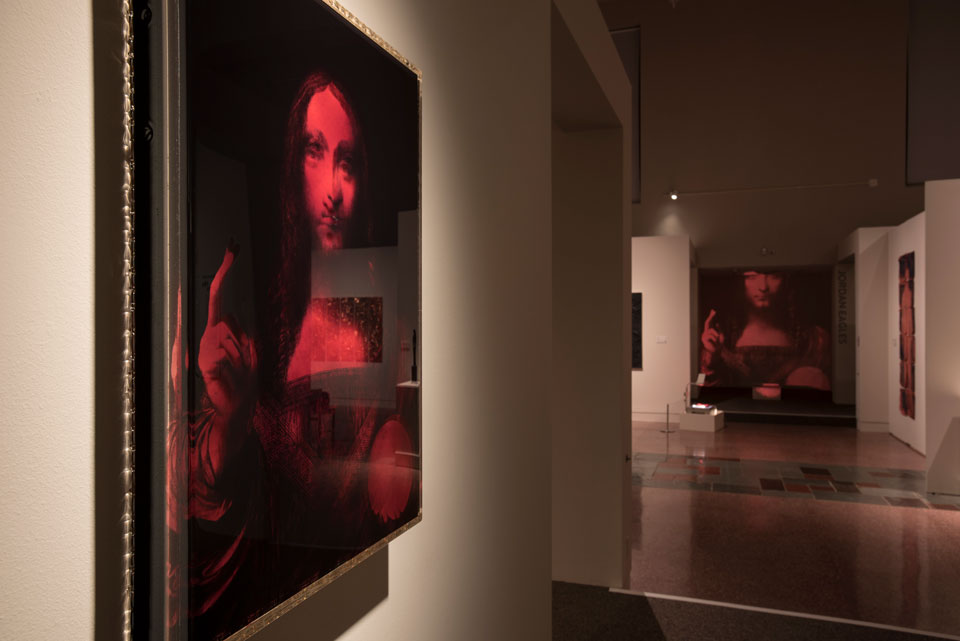
Jordan Eagles: VIRAL\VALUE |
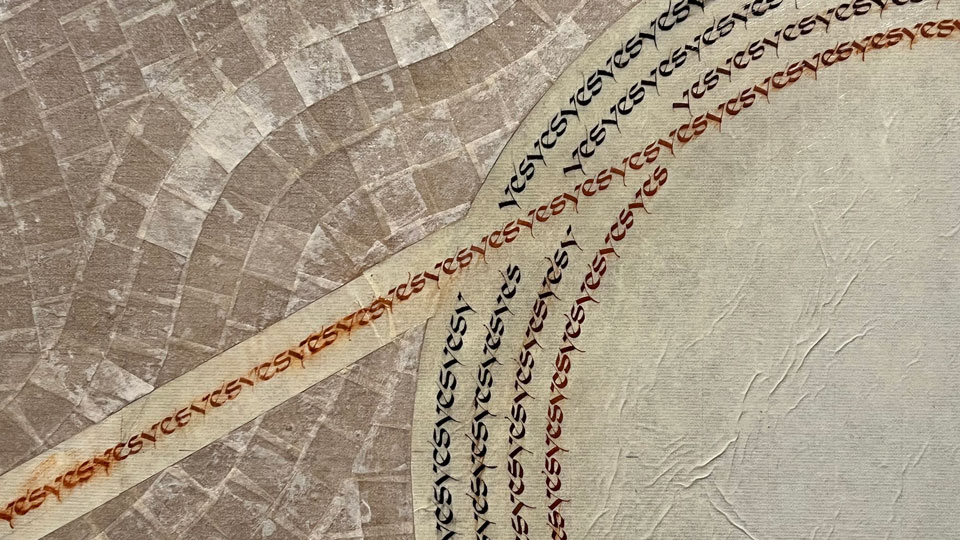
This Road Is the Heart Opening: Selections from the MOCRA Collection |
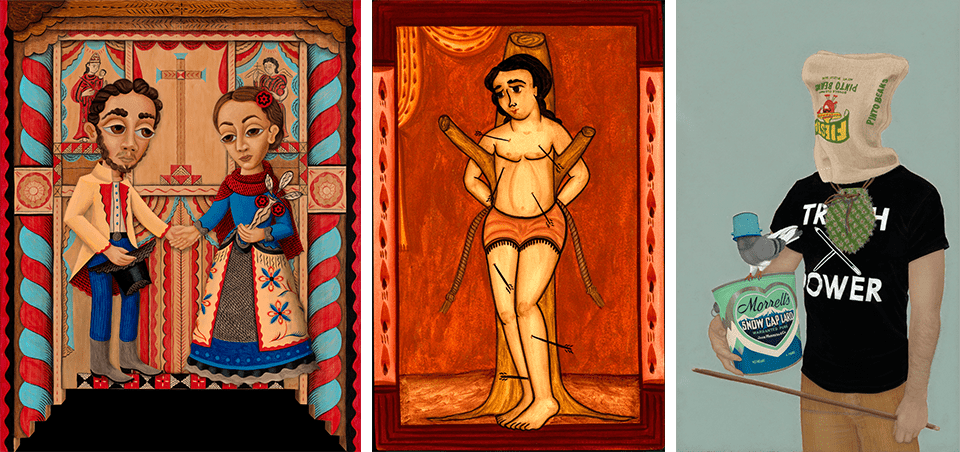
Vicente Telles and Brandon Maldonado: Cuentos Nuevomexicanos |
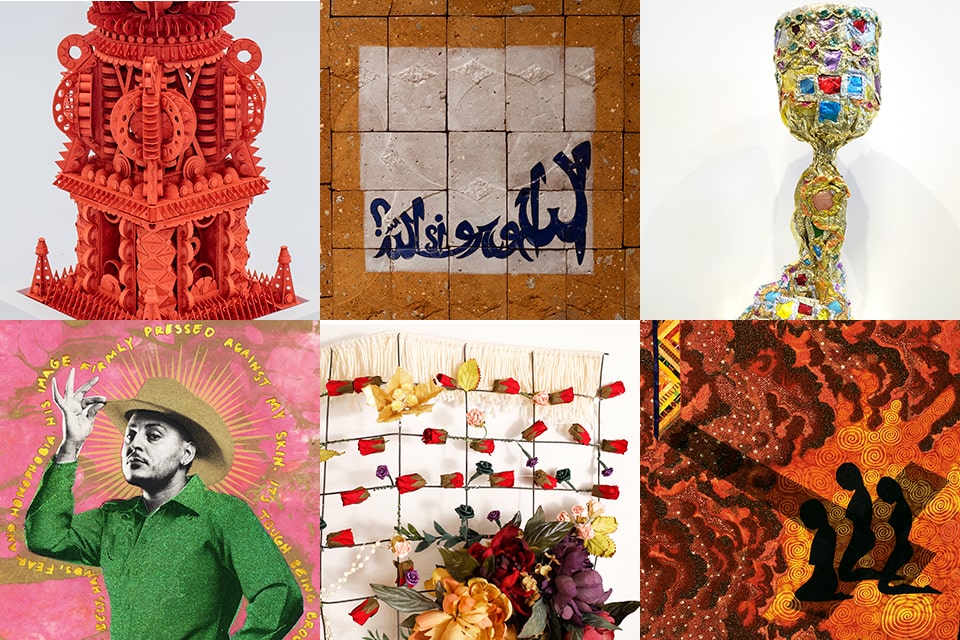
Open Hands: Crafting the Spiritual |
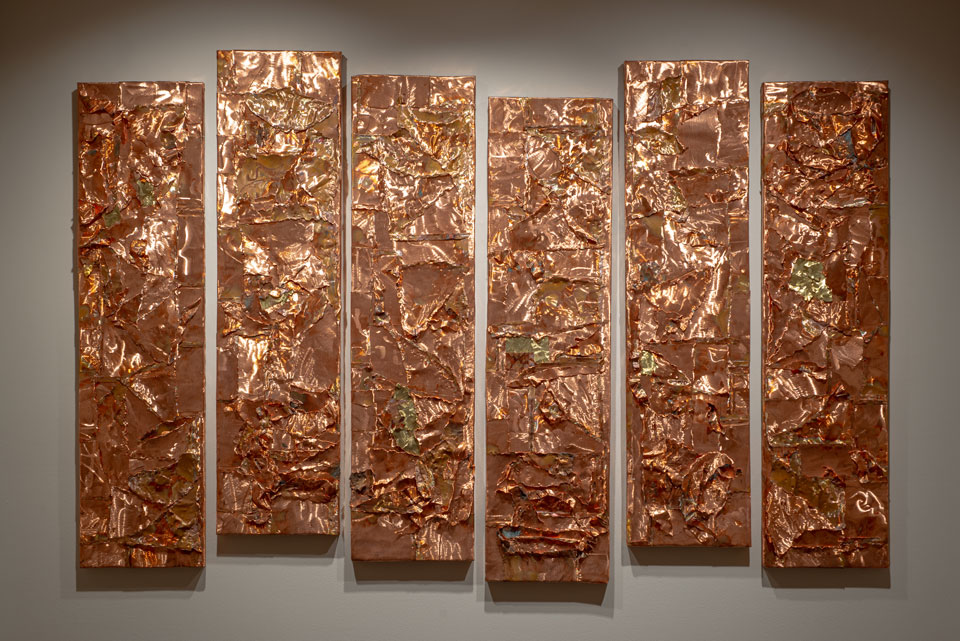
Selections from the MOCRA Collection |
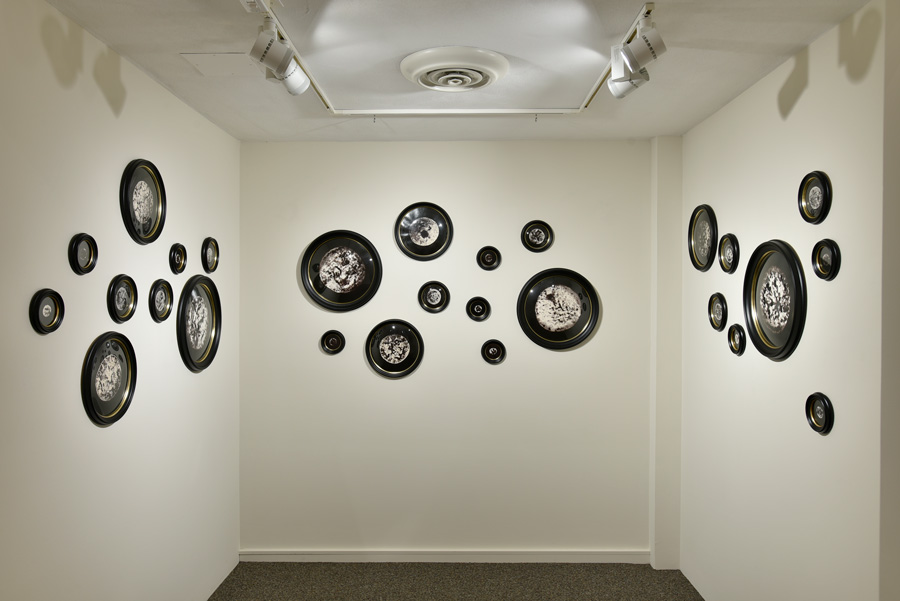
Continuum: Figuration and Abstraction in the MOCRA Collection |
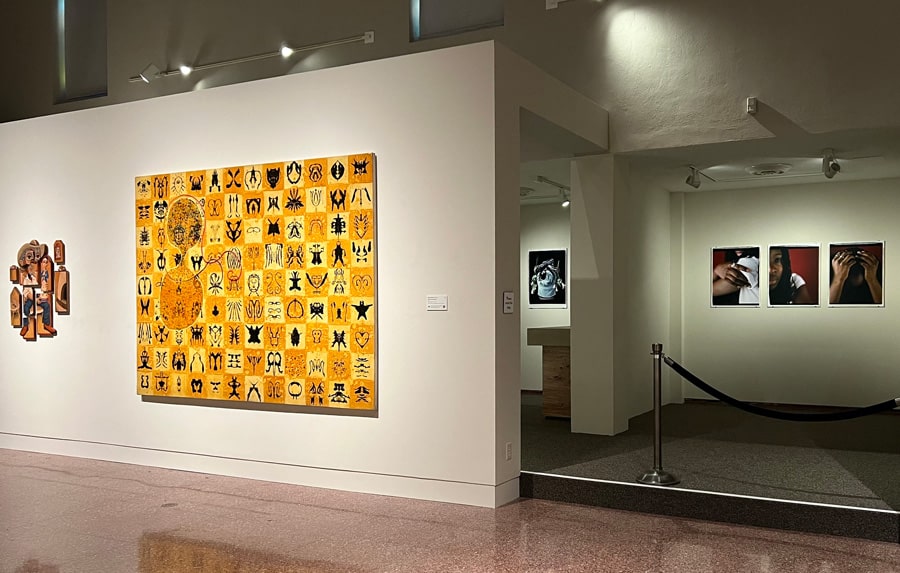
Continuum (Continued): Figuration and Abstraction in the MOCRA Collection |
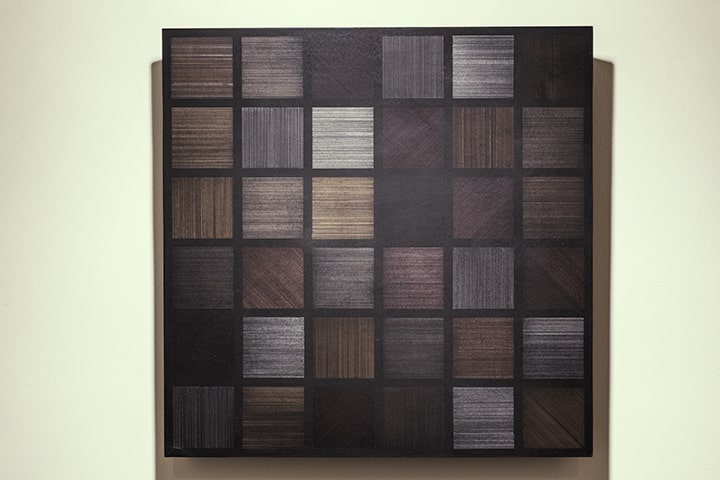
Selections from the MOCRA Collection |